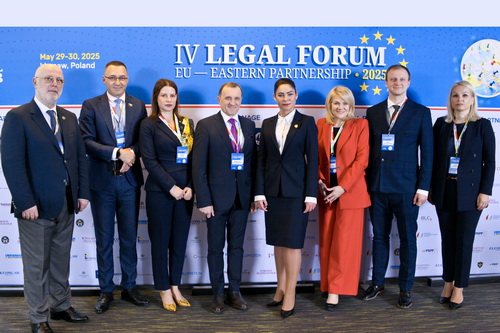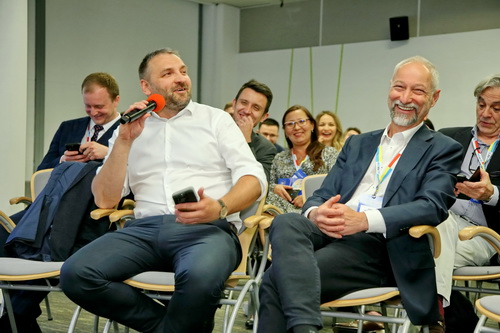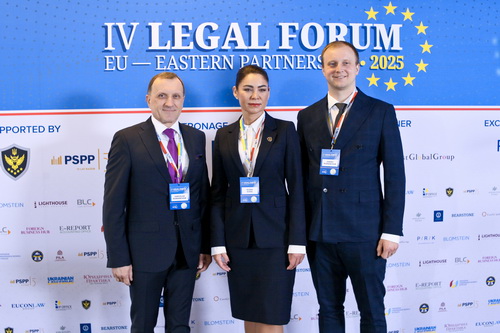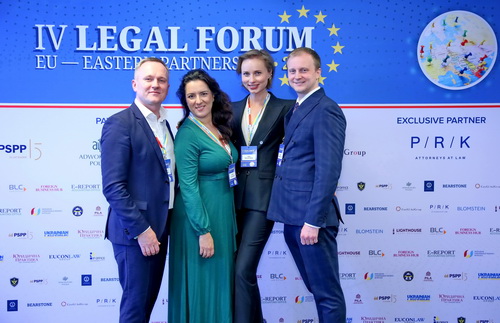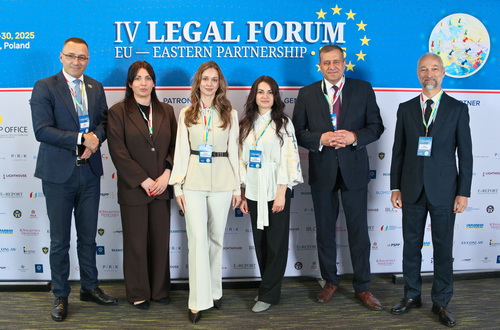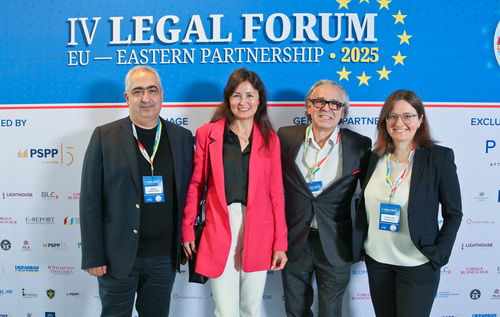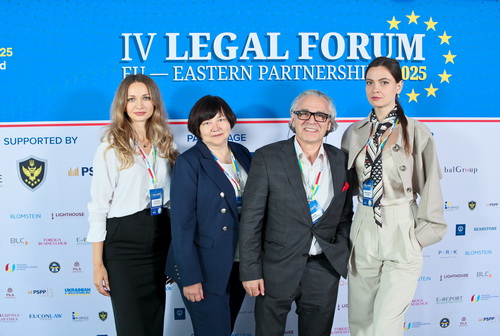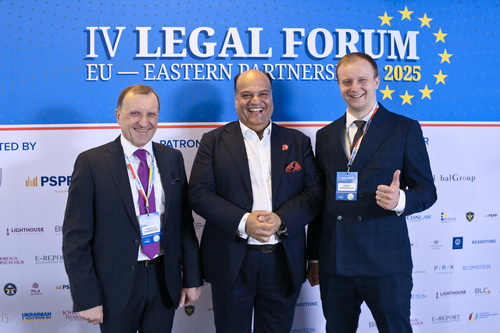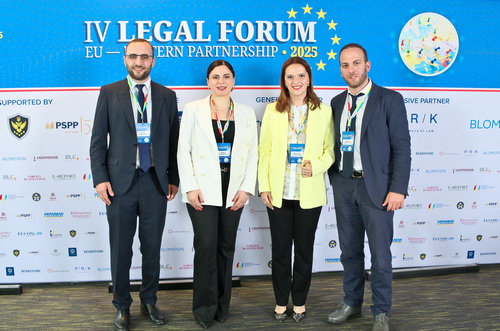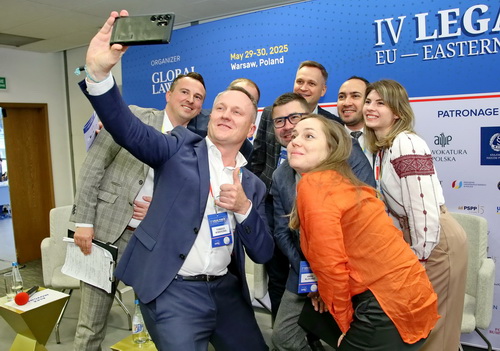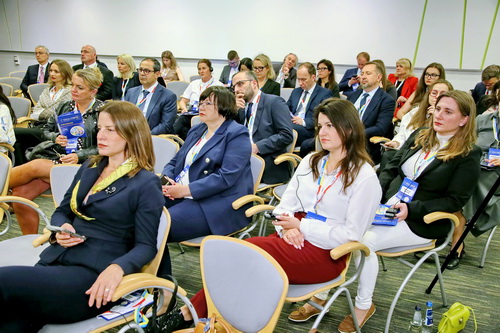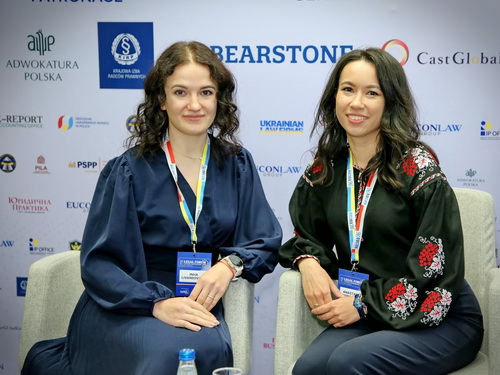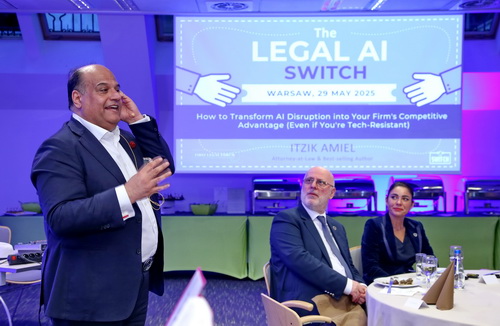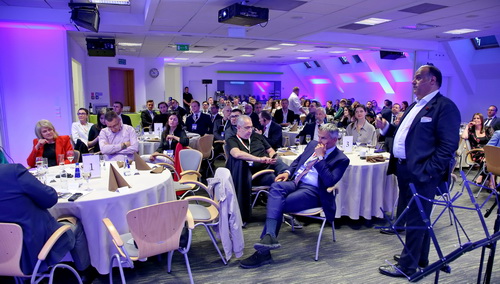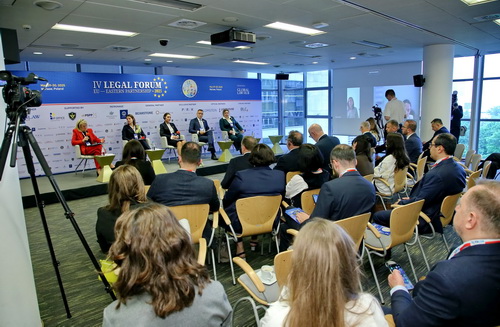
On May 29–30, 2025, the Legal Forum EU–Eastern Partnership was held in Warsaw for the fourth time. The event brought together 150 participants from 24 countries and served as a platform for legal dialogue between the European Union, Eastern Partnership countries, and the Caucasus region. Participants discussed key legal challenges and opportunities for strengthening cooperation. Special attention was given to experience sharing, the implementation of legal reforms, the role of law in advancing international cooperation, and addressing current challenges related to geopolitical dynamics, digitalization, and the need to adapt legal systems to new realities.
Photo report of the Forum
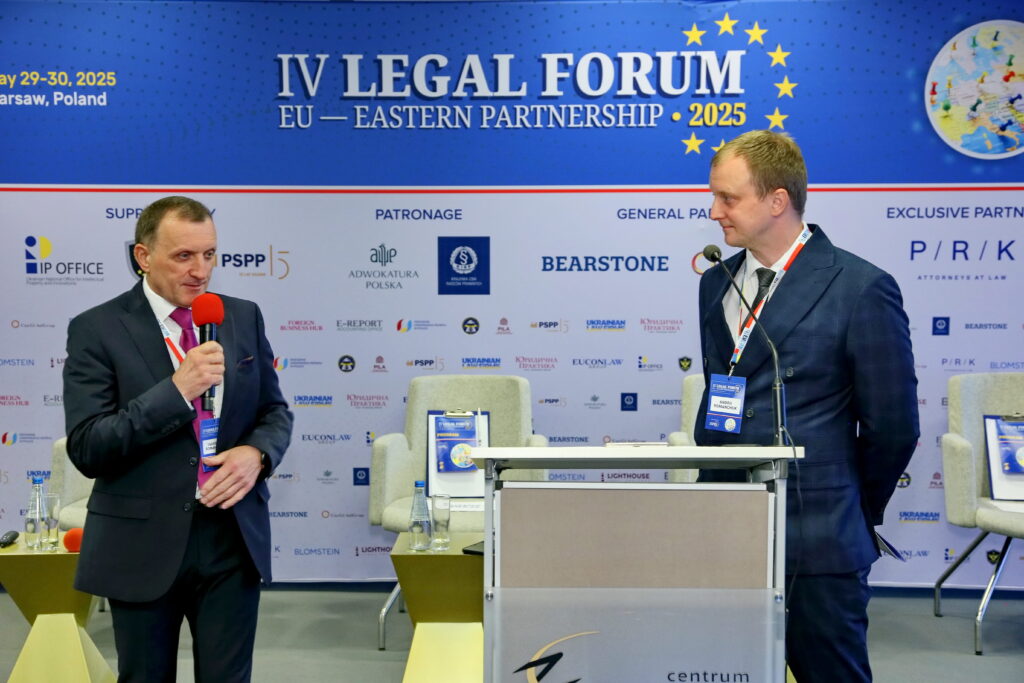
The event was opened by the co-chairs of the Organizing Committee, partners of EUCONLAW Group — Yaroslav Romanchuk and Andrii Romanchuk.
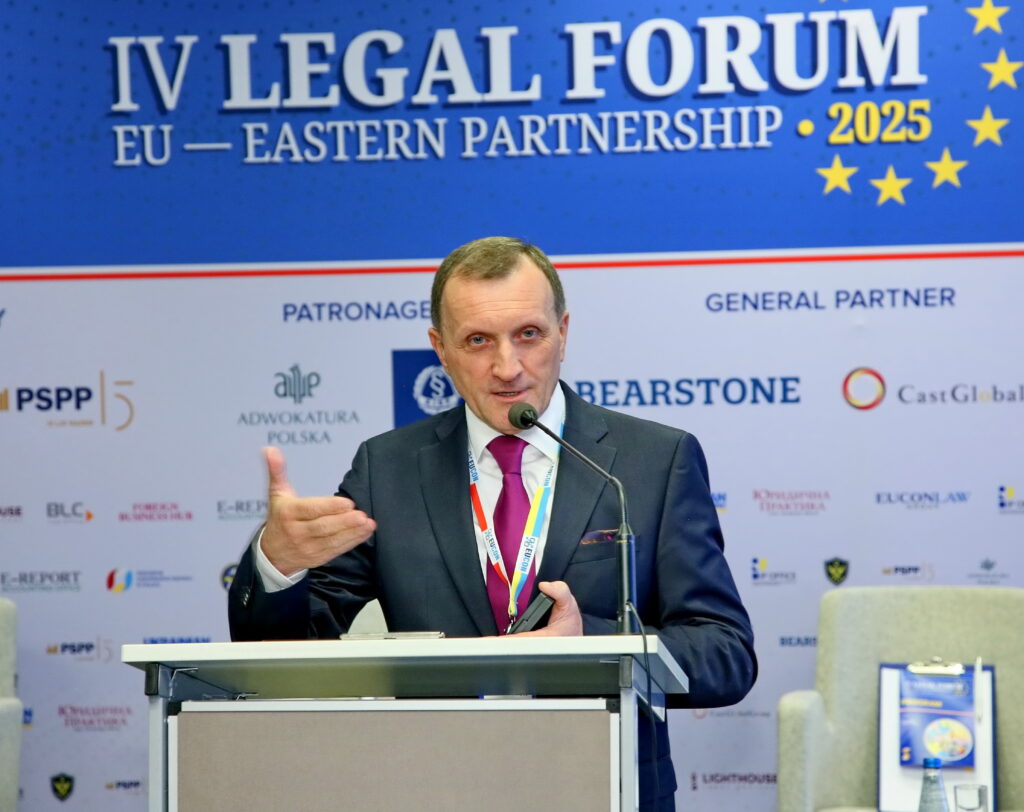
In his welcome address, Yaroslav Romanchuk, Managing Partner at EUCONLAW Group, emphasized that the main goal of the Forum is to establish a sustainable platform for legal dialogue among professionals from the EU, Eastern Partnership countries, the Caucasus, and Central Asia. He highlighted that for the fourth consecutive year, the participants are united by two core themes — international trade and human capital management.
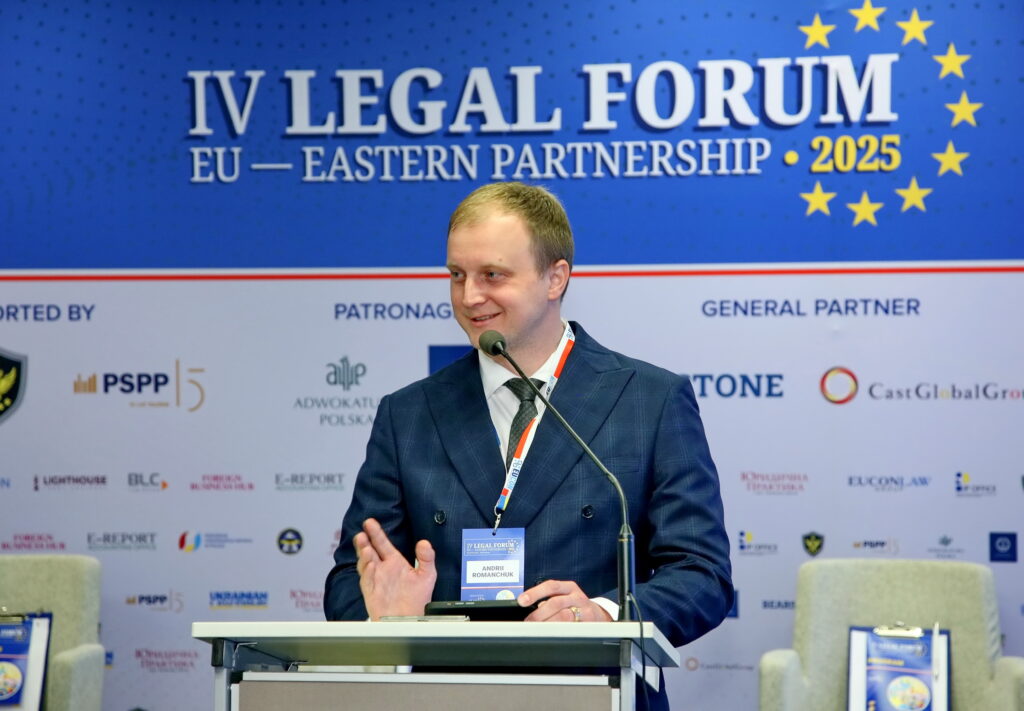
During the opening, Andrii Romanchuk, Senior Partner at EUCONLAW Group, noted that this year’s forum is taking place in a period of profound transformation and growing responsibility for the legal community, particularly in the context of supporting Ukraine. He emphasized that the Forum’s key topics include innovation, cross-border cooperation, trust-building, effective asset management, and the crucial role of law in the post-war reconstruction process. Andrii Romanchuk also extended special thanks to the forum’s partners and sponsors, underscoring that their support was fundamental to the success of the event.
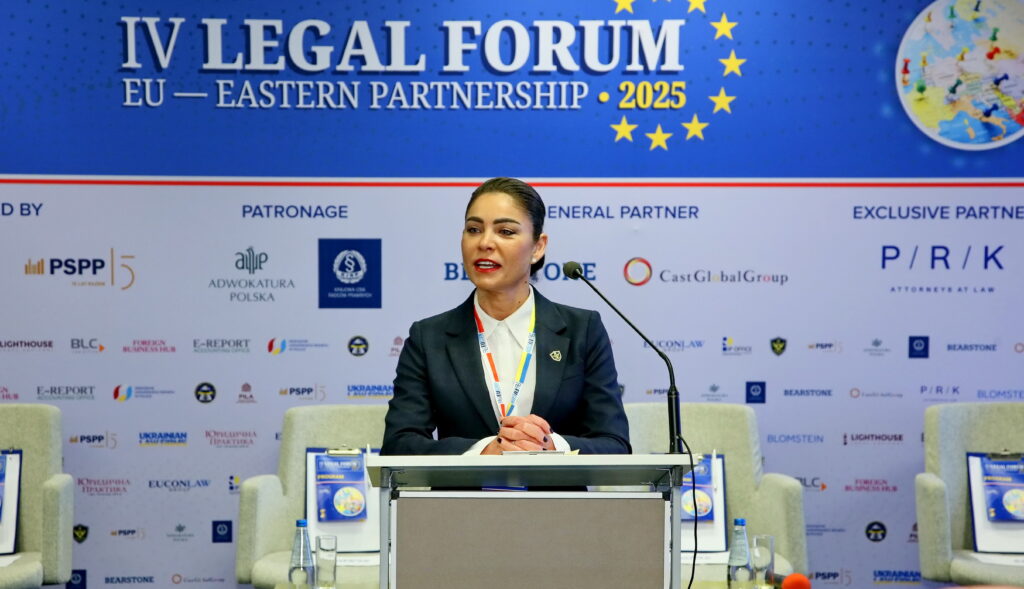
Olena Duma, Head of the National Agency of Ukraine for Detection, Search and Management of Assets Derived from Corruption and Other Crimes (ARMA), also delivered a welcome address at the opening of the Forum. In her speech, she emphasized the importance of uniting legal professionals from different countries to jointly seek effective solutions in combating corruption, strengthening security, and ensuring legal stability. She stressed that modern law is not merely a set of procedures, but above all a system of values: integrity, responsibility, and efficiency. Olena Duma also expressed her gratitude to Poland for its strong social, humanitarian, military, and diplomatic support for Ukraine, calling it a vivid example of true solidarity.
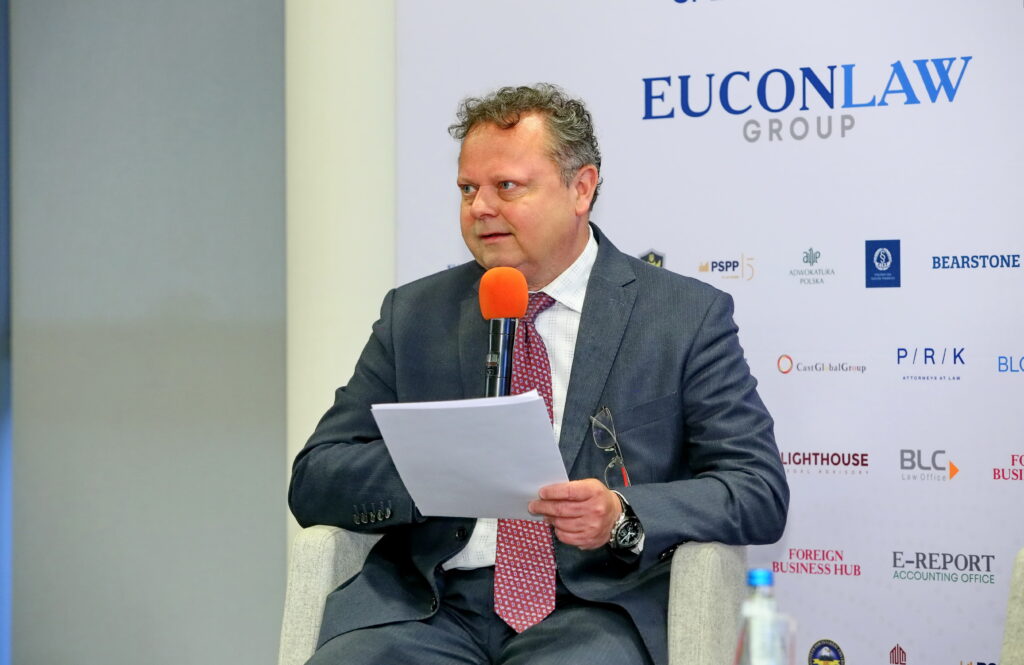
Andrzej Szejna, Advocate, Member of Sejm of Republic of Poland, speaking at the Forum’s opening, outlined three key challenges for the legal community: Russia’s aggression against Ukraine, the human capital crisis (migration and demographics), and the rapid development of artificial intelligence. He called on the legal community to take the lead in ethical and legal transformations, emphasizing that law must serve as a bridge between nations and systems in an era of global change.
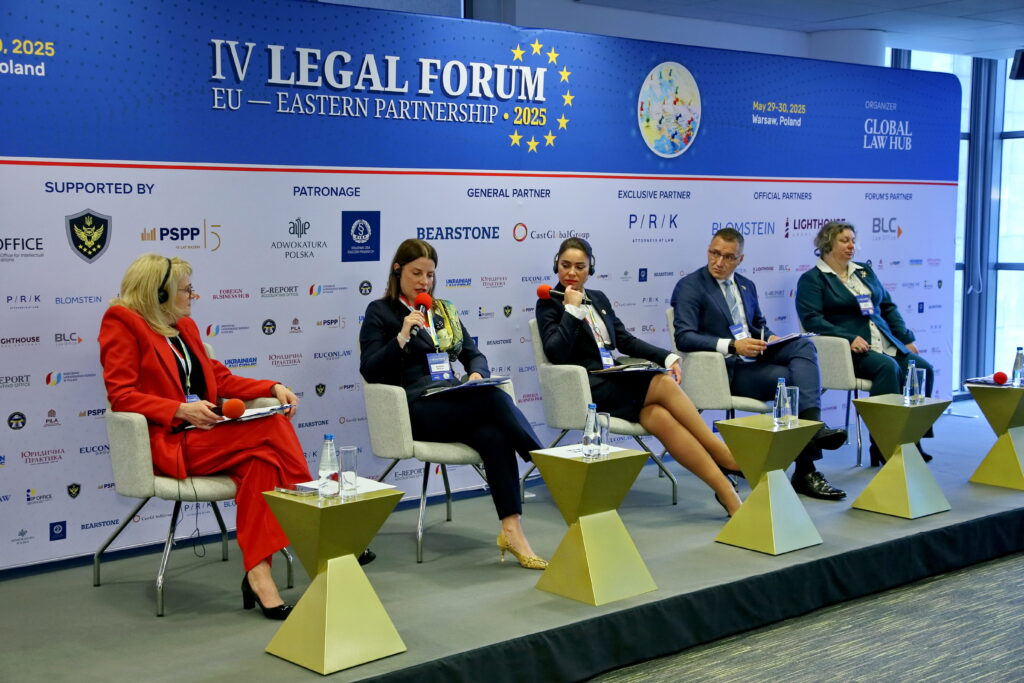
The first panel discussion: Challenges and Strategies for the Management and Sale of Assets Derived from Corruption and other Crimes in the Current Circumstances.
During the panel discussion, participants explored modern approaches to the management of seized and confiscated assets, the key challenges in their disposal, and the importance of international cooperation in this field. Representatives from Ukraine, Germany, Albania, France, Bosnia and Herzegovina, and Moldova shared their national experiences — from the establishment of centralized agencies and digital asset registries to the implementation of transparent asset sale mechanisms and the initiation of legislative reforms.
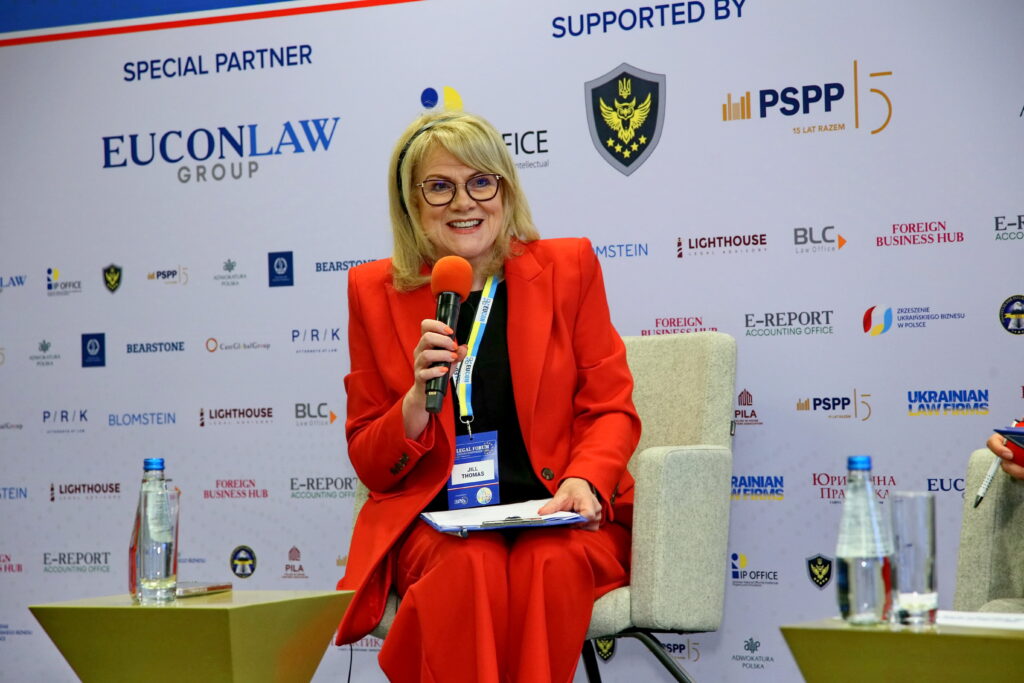
Panel moderator Jill Thomas, Senior Vice President Government Relations, Asset Reality. Asset Recovery Advisor to the BAMIN Secretariat (Germany), opened the discussion by emphasizing the importance of international cooperation in the field of confiscated asset management. She stressed that statistics and transparency are key prerequisites for effectiveness and trust in this domain.
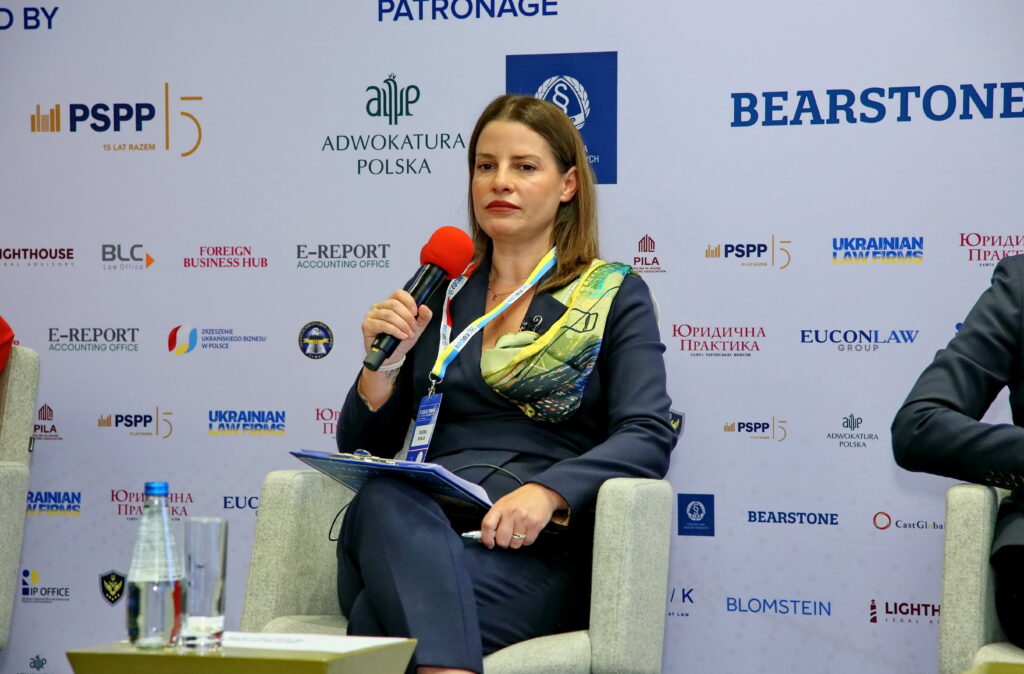
Risena Xhaja, General Administrator, Agency for the Administration of the Seized and Confiscated Assets (AASCA) of Republic of Albania, presented the agency’s work, highlighting the scale and challenges in asset management. “Currently, the agency’s portfolio includes over 2,000 assets, among them 500 real estate properties and 500 bank accounts. The total value of confiscated assets amounts to €2 million, with an additional €10 million currently under seizure,” Ms. Xhaja reported. She also emphasized that key challenges include managing seized companies with complex structures that heavily rely on networks of former owners, as well as a shortage of highly specialized professionals with the expertise required to operate in niche business sectors.
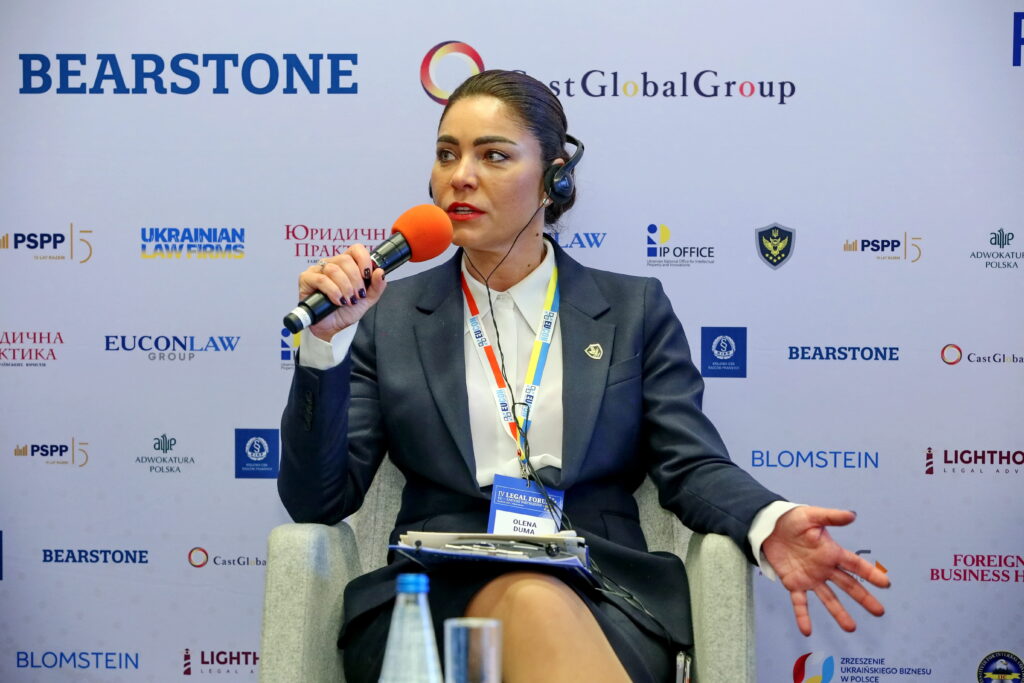
Olena Duma, Head of the ARMA, presented the results of the Agency’s work, noting that in 2023 ARMA transferred 12.4 billion UAH to the state budget, and an additional 3 billion UAH in the first quarter of 2025. “Currently, more than 90,000 seized assets with a total value exceeding 200 billion UAH are under management,” – Ms. Duma emphasized. She also reported that assets worth over 100 billion USD have been identified abroad. According to Olena Duma, ARMA has become an important tool in Ukraine’s fight against the aggressor and is actively working on legislative changes to improve the management of seized and sanctioned assets. Ms. Olena also mentioned a draft law that provides for the transfer of seized sanatorium and medical facilities to be used in rehabilitation programs for military personnel, particularly those in need of psychological or physical support after frontline service.
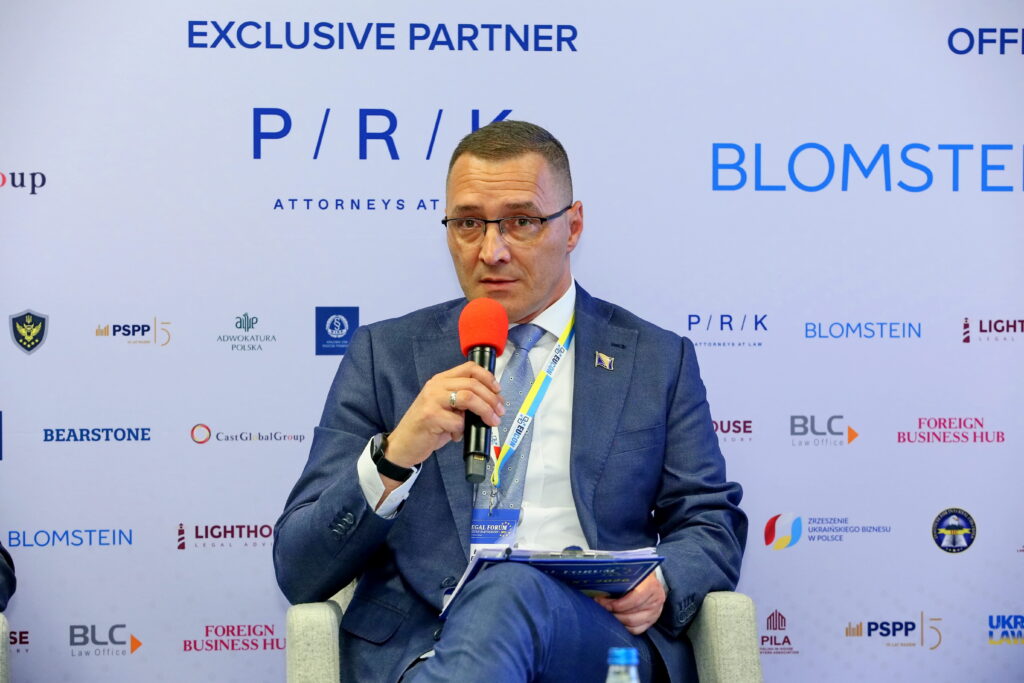
Emir Bašić, Director, Seized Property Management Agency of Federation of Bosnia and Herzegovina, shared his country’s experience in managing seized assets. He noted that currently, three separate agencies operate within different administrative units of the country, while efforts are ongoing at the national level to establish a unified coordinating body. Among the key challenges, Mr. Bašić highlighted the lack of a centralized digital asset registry, which significantly hinders communication between courts, prosecutors, and agencies. He emphasized the importance of continuous monitoring of assets, streamlining of disposal procedures, and the implementation of a unified and transparent digital system for effective asset management.
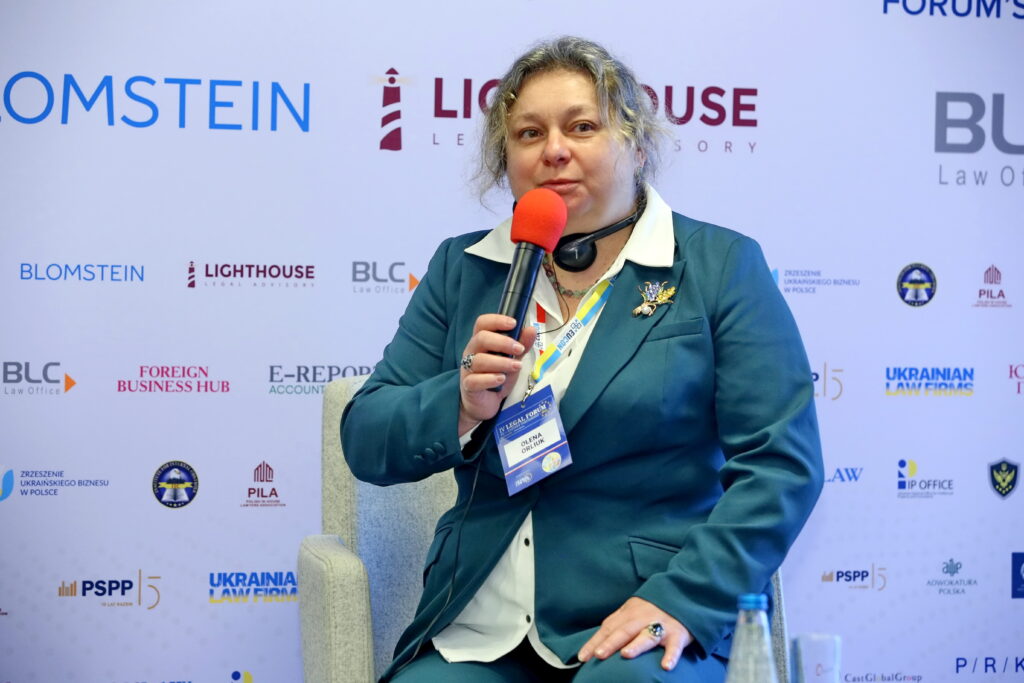
In her speech, Olena Orliuk, Director of Ukrainian National Office of Intellectual Property and Innovations, emphasized the importance of proper management of intangible assets, which are increasingly becoming subject to seizures and sanctions. She noted that to date, ARMA has received 277 trademarks and 31 industrial designs related to sanctioned individuals. She also stated that Ukraine is actively implementing European standards in the field of intellectual property: “Draft laws are currently being prepared and are expected to be adopted by 2027 as part of harmonization with EU law.” Olena Orliuk additionally drew attention to a serious threat — Russia’s attempts to register Ukrainian geographical indications as its own, which requires a strong international legal response.
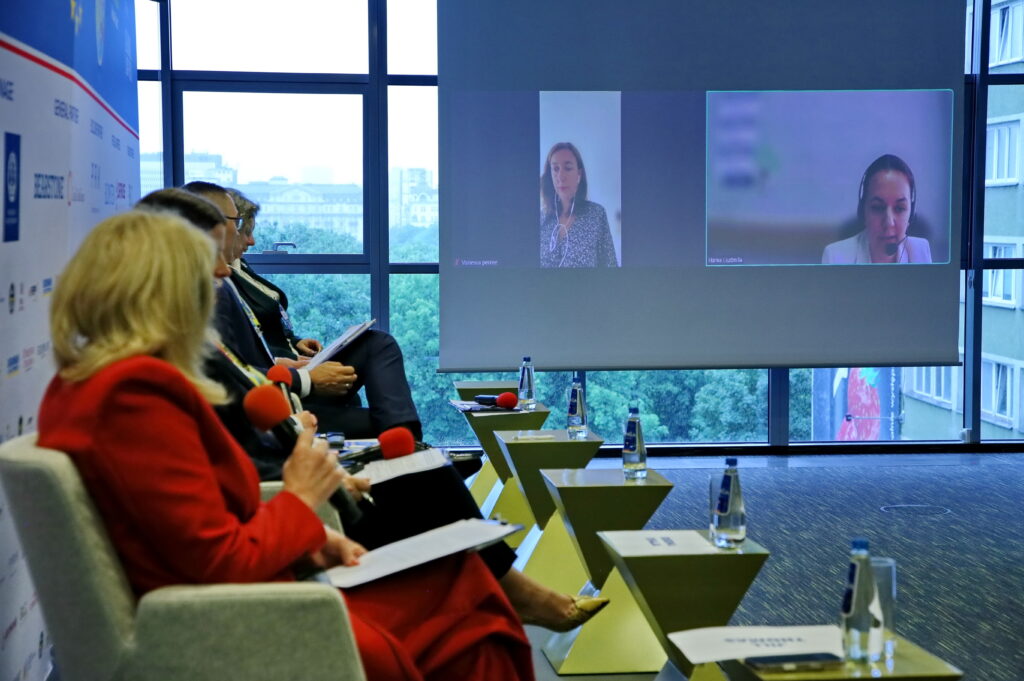
Vanessa Perrée, Director General of French Agency for the Management and Recovery of Seized and Confiscated Assets, also serves as a single contact point for cooperation with other countries. She emphasized the importance of establishing a national asset register and the ability to sell property before a court judgment without the owner’s consent. Among the key challenges faced by France, she highlighted the high cost of maintaining seized luxury assets — for instance, keeping a yacht worth €10 million cost the state €1 million. To improve the efficiency of asset management, she stressed the need to streamline sales procedures, provide training for judges, and strengthen cooperation with banking institutions.
Liudmila Harea, Principal Inspector from Evaluation, Administration and Disposal of Criminal Assets Directorate, Criminal Asset Recovery Agency within National Anticorruption Center of Moldova, shared Moldova’s experience in managing seized assets. She noted that the agency currently manages assets worth approximately 26 million euros and over 1 million US dollars in cryptocurrencies. She emphasized that digital assets are no longer the future but a present-day reality, and Moldova is among the first countries to manage electronic wallets. The speaker highlighted the importance of transparency, digital solutions, and international exchange of experience in the field of asset recovery.
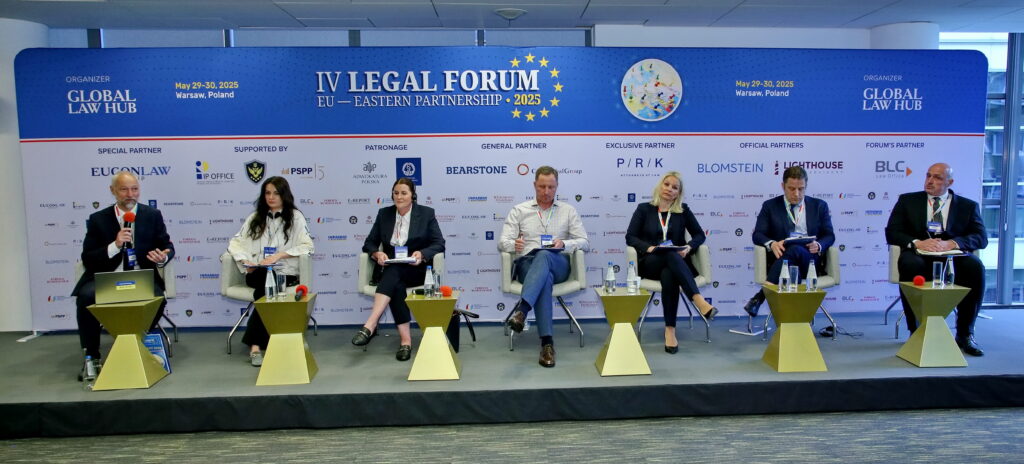
Second panel discussion Improving the Effectiveness of Finding and Recovering Assets Derived From Corruption and other Crimes: The Role and Mission of the Legal Profession in Asset Tracing and Recovery Process.
The panel was moderated by Janis Bordans, Attorney at Law, Deputy Prime Minister (2019 – 2022) and Minister of Justice of Latvia (2012 – 2014 and 2019 – 2022).
During the panel, participants discussed key challenges and practical aspects related to the identification, seizure and return of assets obtained through criminal means or associated with sanctioned persons. The importance of a multidisciplinary approach, effective information exchange between jurisdictions, the role of international networks (such as CARIN, ARO, Europol, Interpol) and the need for digital tools were highlighted. Speakers shared experiences from Ireland, the United Kingdom, Poland and Ukraine, highlighting the need for transparent management of confiscated assets.
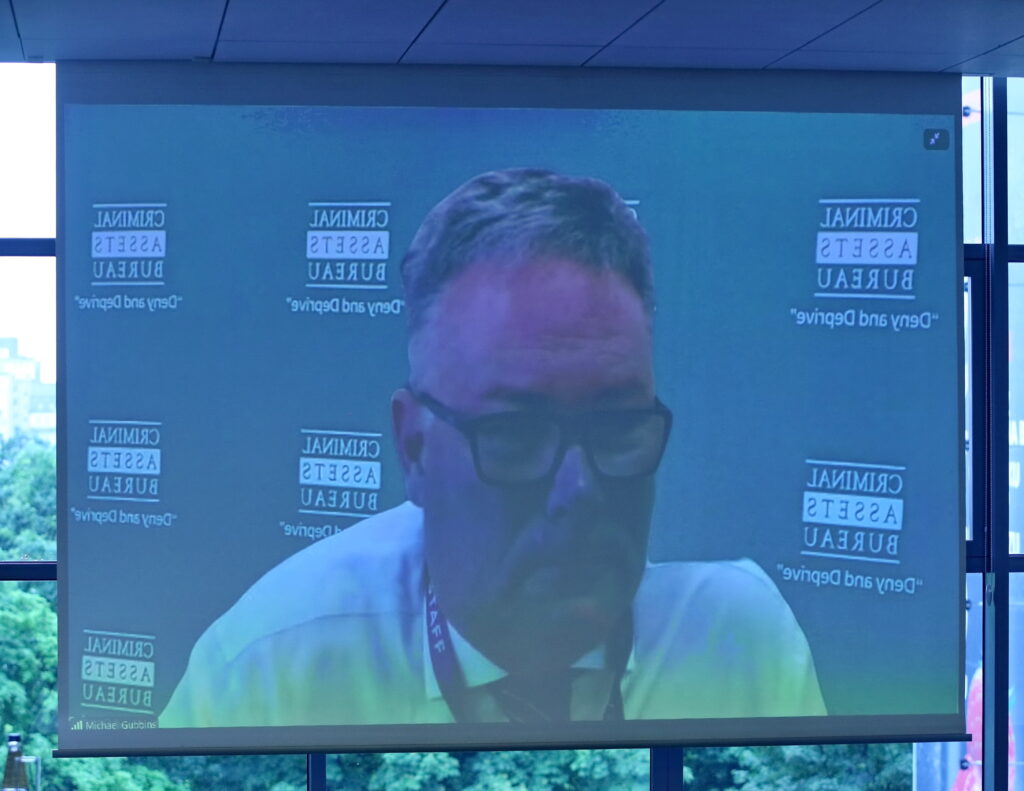
Michael Gubbins, Chief Bureau Officer, Criminal Assets Bureau of Ireland, shared his experience in building an effective system for investigating and confiscating assets obtained through criminal activities. In his speech, he emphasized the critical importance of a multidisciplinary approach, access to national registries, high-quality personnel training, and well-established international cooperation — particularly through the CARIN network and coordination among national ARO offices. As Mr. Gubbins noted, the Bureau annually seizes a wide range of assets — from cryptocurrency to real estate — and ensures their transparent disposal through online auctions. He stressed that even in countries with well-developed institutions, only close interagency and international cooperation enables tangible results in combating economic crime.
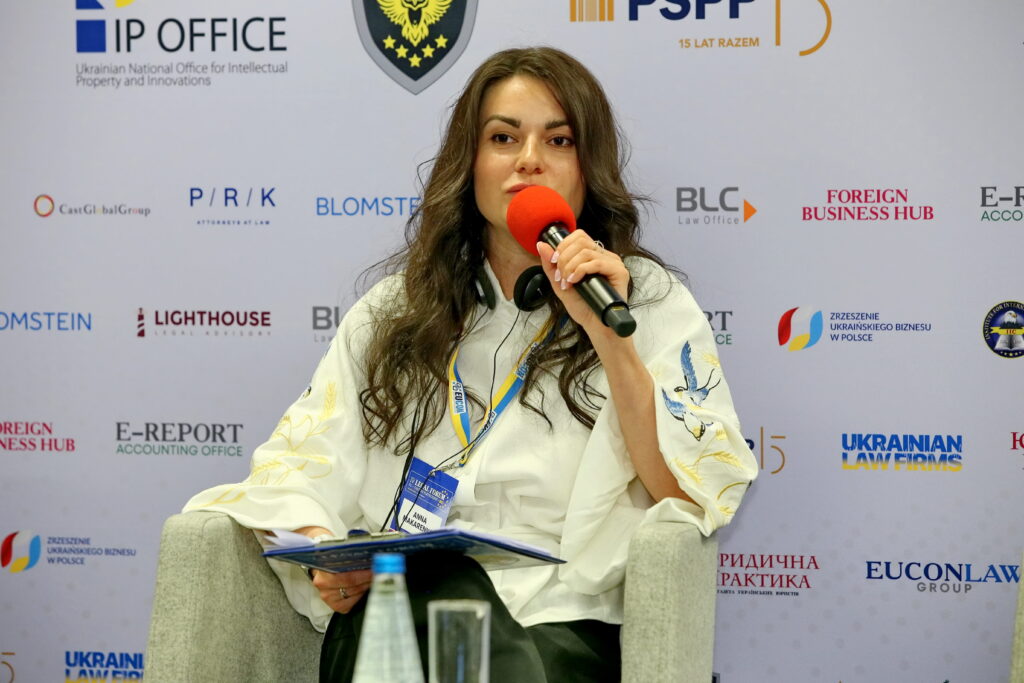
Anna Makarenko, Head of the Department for Finding, Tracing and Recovery of Assets in Foreign Jurisdictions, Asset Recovery and Management Agency (Ukraine), emphasized the need for a comprehensive approach to effective asset tracing and recovery. In her speech, she highlighted the importance of interagency cooperation, access to registries, and information exchange between jurisdictions as key elements of successful work. According to her, in 2023 the agency processed over 8,000 requests — mostly from the National Police of Ukraine — and identified assets worth more than 5 million USD in cooperation with the National Agency on Corruption Prevention (NACP). Ms. Makarenko also noted the high efficiency of international platforms such as CARIN, Europol (SIENA), and Interpol in exchanging data on assets of individuals included in sanctions lists.
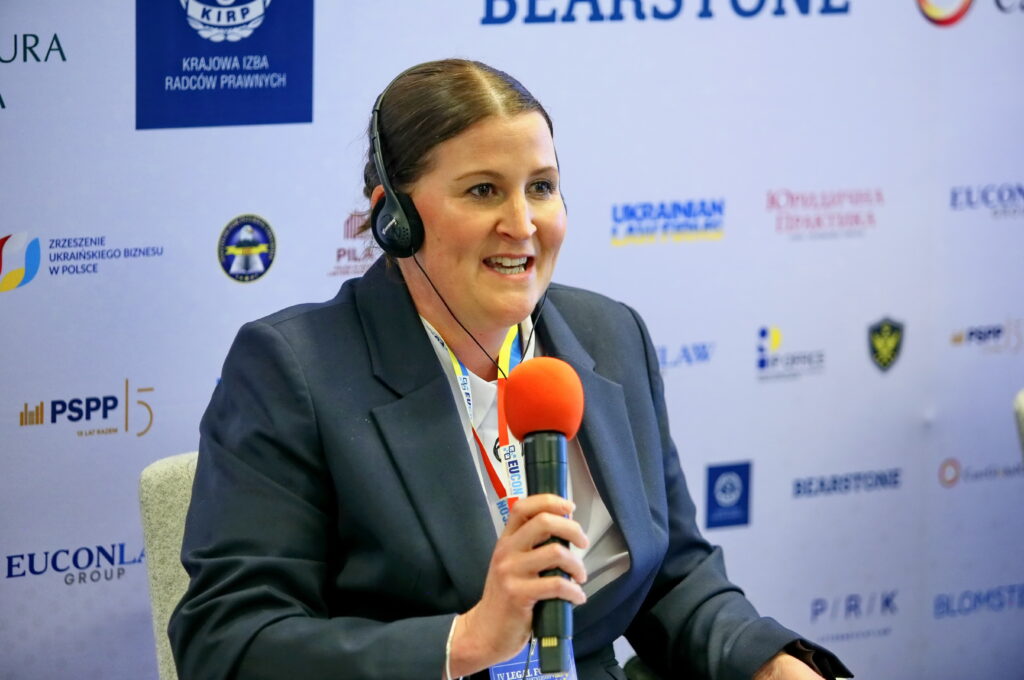
Jenny Bordley, Specialist Prosecutor, Proceeds of Crime Division, Crown Prosecution Service (United Kingdom), emphasized the role of the prosecution in ensuring the effective confiscation of assets. She highlighted the challenges associated with identifying crypto-assets, particularly due to jurisdictional limitations and the volatile nature of the companies that manage such assets (e.g., Binance or Coinbase). Ms. Bordley stressed that determining the jurisdiction of an asset and confirming its legal status are critical for successful confiscation. She also noted that even in complex cases with an international component, the application of clear legal criteria to establish asset ownership enables effective asset recovery.
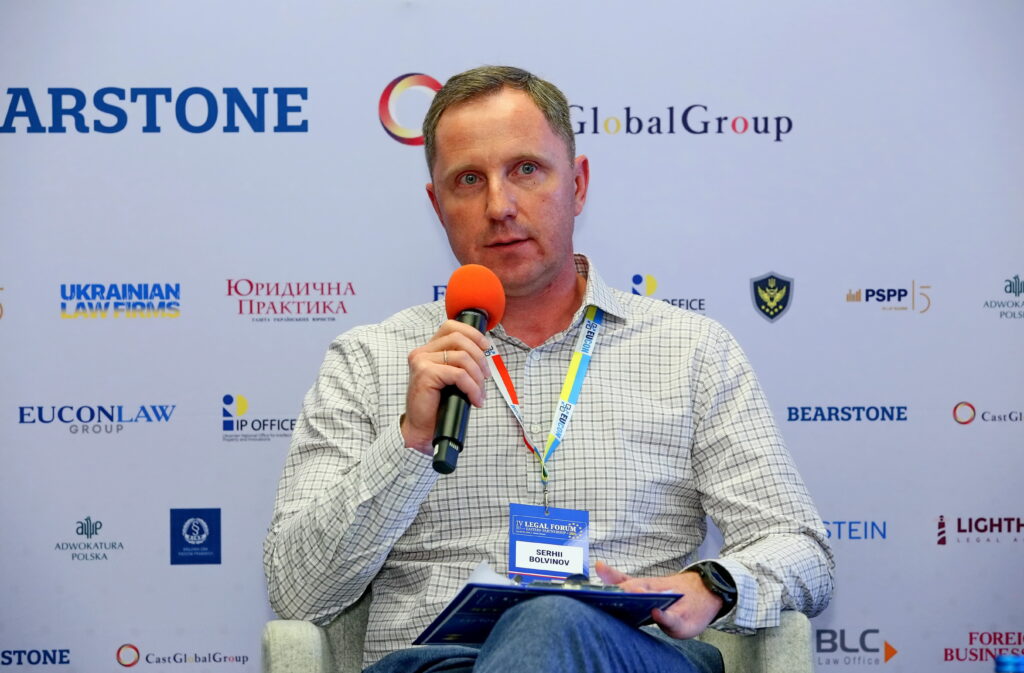
Serhii Bolvinov, Police Colonel, Legal Expert, Investigator, Head of the Investigation Department of the Main Directorate of the
National Police in Kharkiv Region (Ukraine), outlined the priority areas of police activity in wartime conditions. He emphasized that since the beginning of the full-scale invasion, the focus of law enforcement work has shifted: in addition to investigating corruption and economic crimes, officers are now primarily engaged in documenting war crimes and tracing assets linked to the aggressor. According to Mr. Bolvinov, his department currently employs over 1,000 investigators and forensic experts, and effective asset recovery requires close cooperation with other institutions, particularly the Asset Recovery and Management Agency (ARMA).
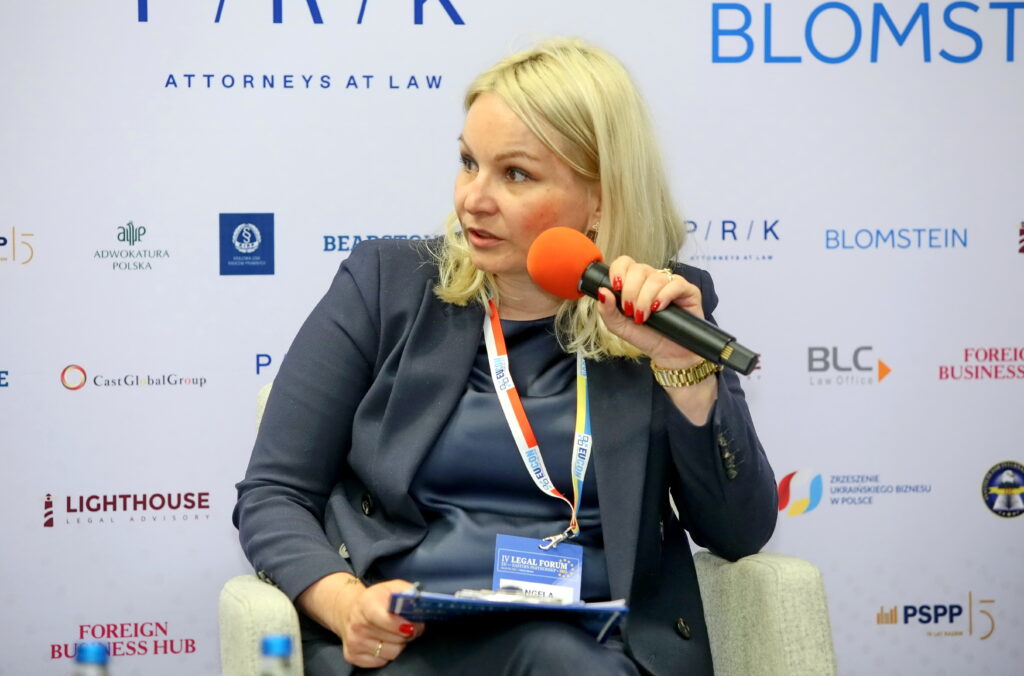
Angela Pacholczak, Director of the Control Procedures Department, Central Anti-Corruption Bureau of Poland, shared the experience of the law enforcement system in detecting, investigating and preventing economic crimes. She emphasized the need to move from outdated analog methods to digital solutions, including the creation of centralized registries, the use of analytical tools, and artificial intelligence.
Ms. Pacholczak stressed the importance of early detection of assets before the start of a formal investigation and the development of financial analytics in investigative bodies. She also welcomed the new EU directive, which expands the possibilities for confiscation of assets, including without a court verdict, and allows for more effective application of sanctions within the European Union.
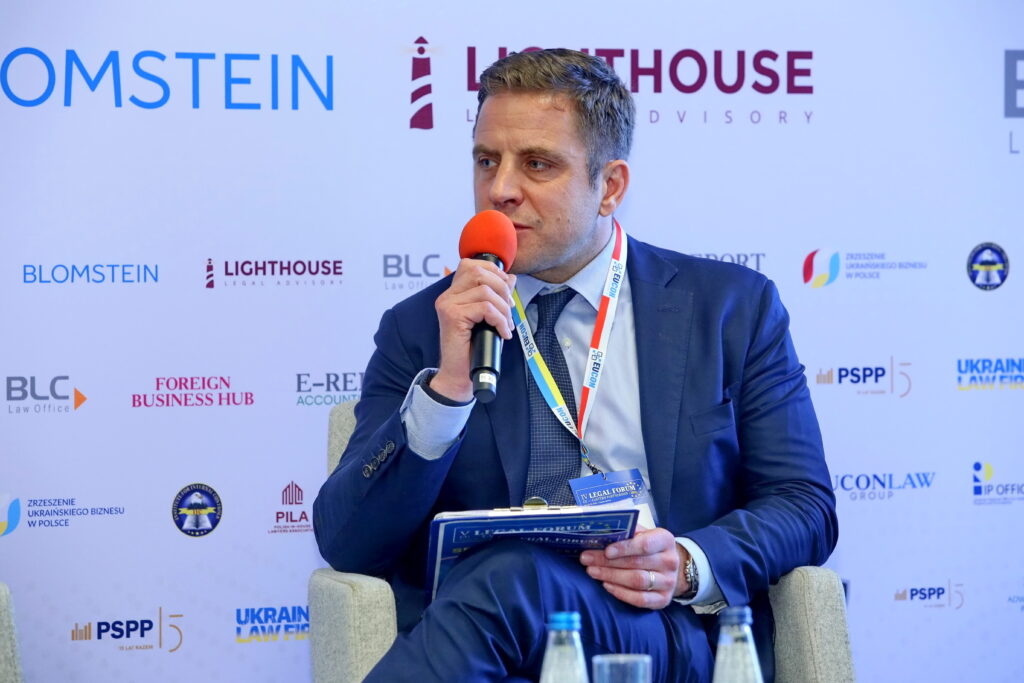
Andrew de Roy, Founder of Bearstone, which operates in Poland, Germany and Serbia, shared a business perspective on the challenges in asset tracing and recovery. He noted that efficiency in this area remains low, in particular due to fragmented systems, lack of digitalization and limited international cooperation. Mr. Andrew focused on the challenges of engaging with uncooperative jurisdictions (e.g., Russia, China, North Korea) and the role of the private sector in building multidisciplinary teams. He emphasized that even small improvements in technology and communication can significantly improve the effectiveness of asset recovery.
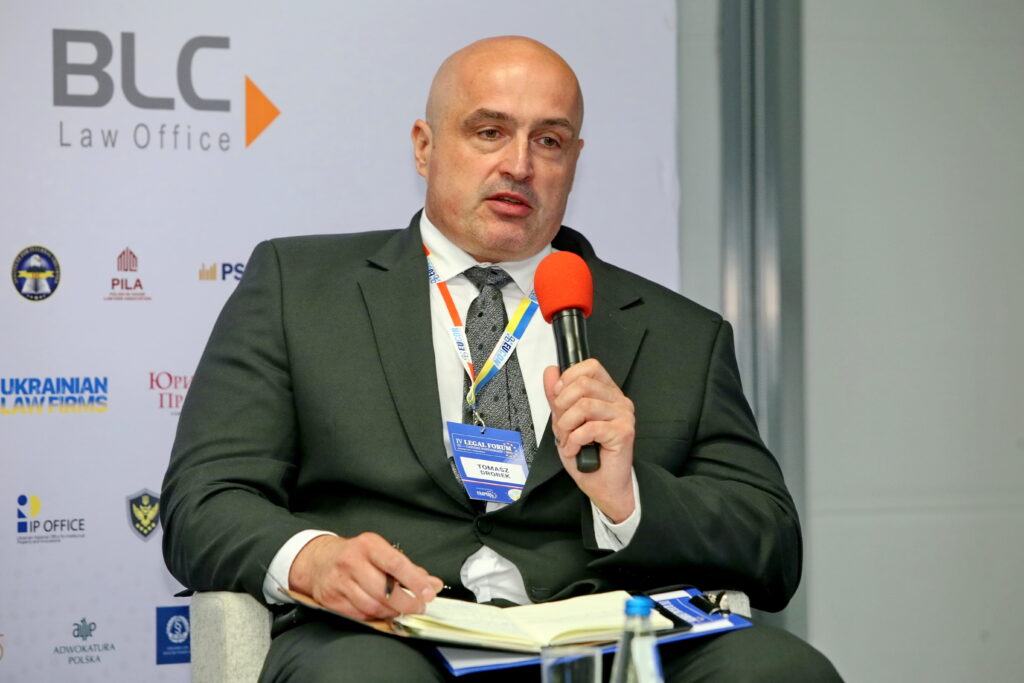
Tomasz Drobek, Expert of the Operational Investigative Department of the Central Anti-Corruption Bureau of Poland, presented the Polish approach to implementing the new EU directive on asset confiscation. He emphasized that the upcoming changes foresee the establishment of a clear system for the allocation of competencies and the expansion of confiscation mechanisms — including without a court verdict, as well as concerning assets held by third parties. Mr. Drobek also drew attention to the low effectiveness of the current regulations regarding the liability of legal entities, which is limited by the requirement for a prior conviction of a natural person. “An important step in strengthening the system should be the development of a national asset recovery strategy, which is planned to be adopted by 2027,” the speaker noted.
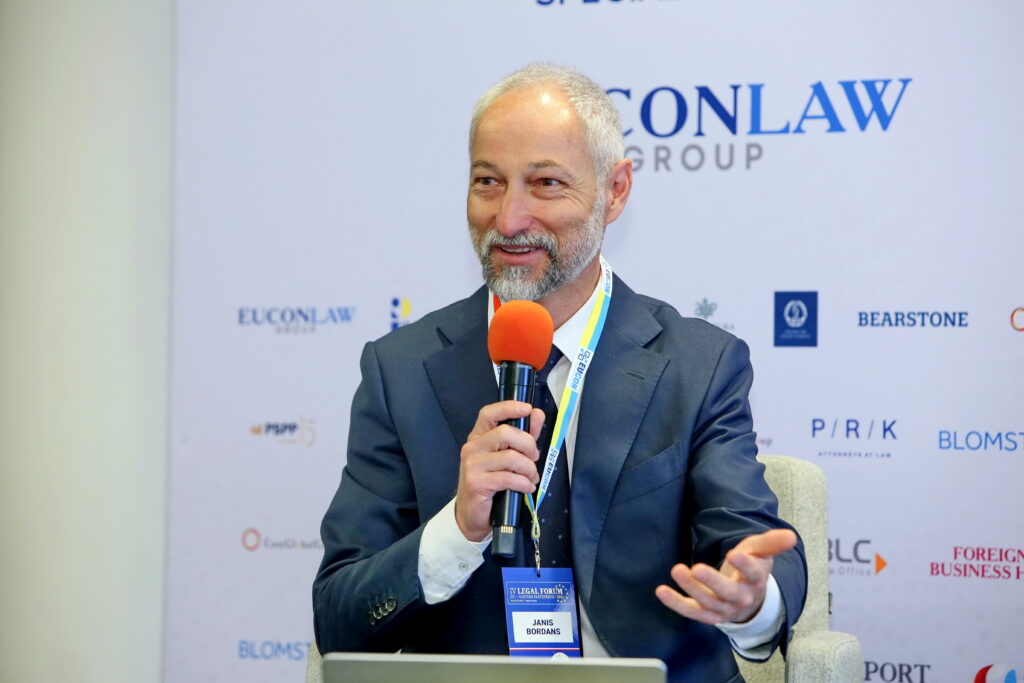
Concluding the panel, Janis Bordans, Attorney at Law, Deputy Prime Minister of Latvia (2019–2022), and Minister of Justice of Latvia (2012–2014 and 2019–2022), emphasized the importance of professional dialogue, open exchange of experience, and addressing real issues faced by lawyers and law enforcement practitioners in their daily work. He stressed that in the field of managing seized assets, there are no minor matters — each stage, from investigation to asset management, is equally important. The moderator underlined that only through interdisciplinary dialogue and cooperation among experts from different countries can effective solutions be found. He also highlighted that effectiveness in this area largely depends on the technological readiness of professionals to work with digital tools.
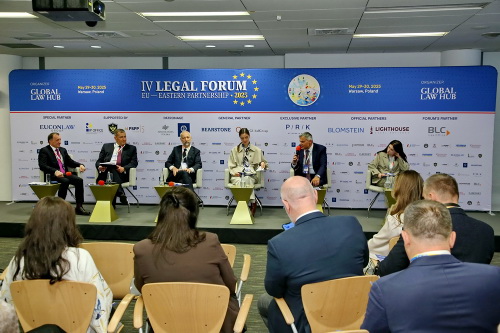
Third Panel Discussion Reconstruction of Ukraine and International Financial Investments: How Can Lawyers Facilitate Safe Market Entry, Protect Investors During Post-War Recovery, and Shield Them From Future Risks.
During the discussion, participants addressed the key conditions and challenges for attracting foreign investment in Ukraine’s reconstruction process. The conversation focused on legal tools for capital protection, government incentives, the management of wartime risks, and the need to build institutional trust. Experts from Ukraine, the EU, Switzerland, Poland, and other countries shared practical experience on establishing legal safeguards, implementing compliance systems, utilizing international arbitration, and developing reputational protection for investments.
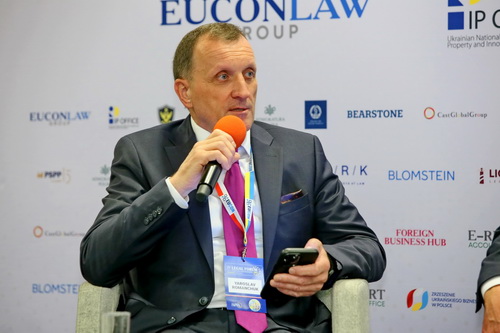
The panel discussion was moderated by Yaroslav Romanchuk, Co-Chair of the Organizing Committee and Managing Partner at EUCONLAW Group. In his opening remarks, he emphasized that, according to World Bank estimates, Ukraine’s reconstruction needs over the next ten years exceed $500 billion—almost three times the country’s GDP in 2024. “The involvement of the private sector, particularly foreign investors, will be especially critical in this process,” the moderator stressed.
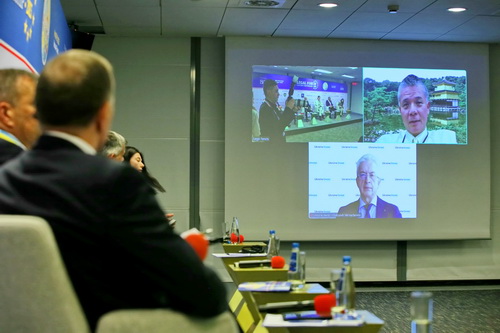
Oleksandr Melnychenko, Acting Executive Director of UkraineInvest (Ukraine), highlighted that despite the war, Ukraine has succeeded in building an effective system for supporting and protecting investors. A key mechanism is the Law on Significant Investments, which offers benefits for projects exceeding €12 million—including exemptions from corporate income tax, VAT, and customs duties, as well as compensation of up to 30% of investments. He noted that two special investment agreements have already been signed, totaling €96 million. UkraineInvest is currently supporting over 30 investment projects and provides free legal and analytical assistance to foreign investors.
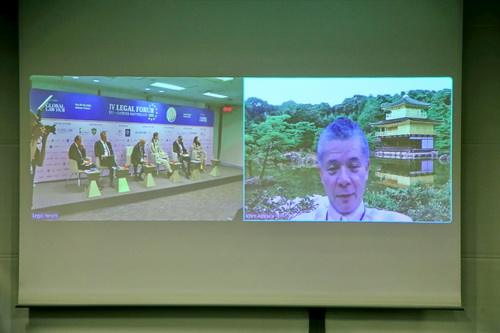
Ichiro Ashihara, Partner at Legal Profession Corporation Cast Global (Japan), noted the strong interest of Japanese businesses in participating in Ukraine’s post-war recovery. “Japanese trading companies are actively studying the Ukrainian economy and are forming specialized teams to enter the market. While investment activity has not yet started, companies are in the process of building partnerships and identifying areas for cooperation,” Mr. Ashihara stated. He added that Japan is ready to share its experience in recovery from large-scale disasters—including wars and natural catastrophes—making it a potentially important partner for Ukraine.
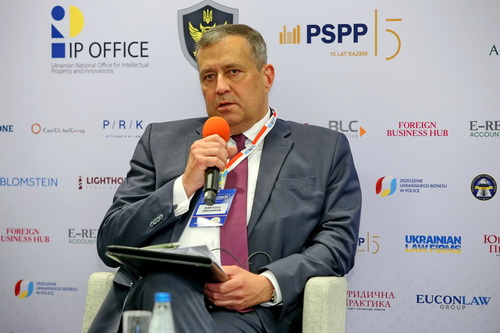
Bartosz Grohman, Advocate, Vice-President of the Polish Bar Council and Head of the Polish Advocates’ Delegation to the CCBE (Council of Bars and Law Societies of Europe), emphasized the critical importance of legislative stability for attracting investments. He noted that in Poland, due to frequent legislative changes, the implementation period for development projects has increased from 2 years (20 years ago) to 5 years today. The expert praised Ukraine’s efforts in combating corruption, referring to the arrest of a Supreme Court judge on corruption charges as a positive signal for investors. He also highlighted the success of the Polish-Ukrainian platform “Nazowni”, which brings together entrepreneurs from both countries and provides access to a database of companies open to cooperation. The speaker further mentioned Resolution No. 618 of the Polish Bar, which was disseminated throughout Europe to refute claims that Ukraine is the aggressor in the war with Russia.
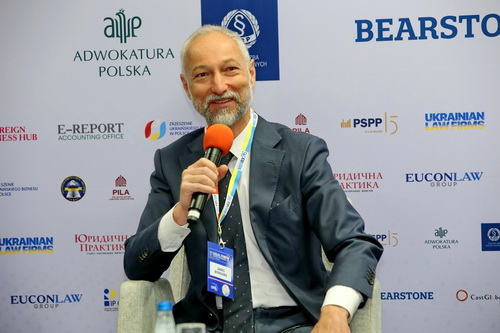
Janis Bordans, Attorney at Law, Deputy Prime Minister of Latvia (2019–2022) and Minister of Justice of Latvia (2012–2014 and 2019–2022), stressed the importance of reputation, transparency, and clear rules of the game for attracting investment to Ukraine. He shared Latvia’s experience, pointing out critical mistakes in building an investment climate due to unprofessionalism in public institutions and the intertwining of business and politics. According to him, Ukrainian companies must integrate Western management and business standards, while the state must demonstrate to investors a concrete plan for governmental and societal transformation. Among the key conditions, he named the establishment of a reliable investment protection system through robust institutional support and legal guarantees.
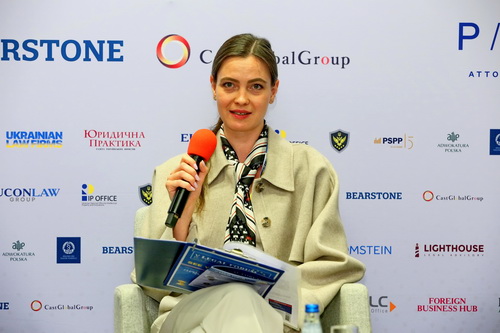
Anastasiia Dziuba, Legal Advisor at Lighthouse Legal Advisory (Switzerland), presented the strategy of Swiss investment in Ukraine’s reconstruction. She noted that the Swiss government, through SECO, has allocated 50 million Swiss francs, but the funds will be directed exclusively to Swiss companies with branches in Ukraine — a model that ensures additional capital protection. The expert emphasized that Switzerland could serve as a central hub for attracting investments from the Middle East, Europe, and the United States, thanks to its reputation for neutrality and legal stability. She also highlighted the role of digital compliance solutions, legal technologies, and international trust as foundational elements for launching investment mechanisms. Ms. Dziuba underscored the critical need to modernize the bilateral agreements between Ukraine and Switzerland, as the existing documents are outdated and do not meet current international sustainable development standards.
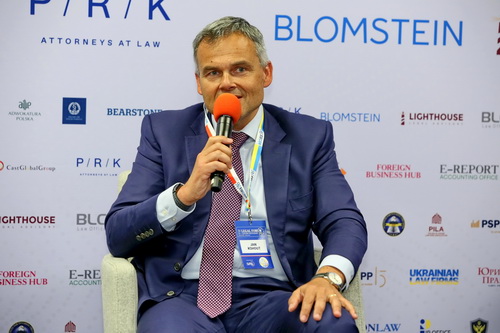
Jan Kohout, Attorney at Law and Partner at PRK Partners (Czech Republic), emphasized that Czech investors are prepared to contribute to Ukraine’s reconstruction, especially in the agricultural sector and renewable energy. Among the available support tools for Czech investors, the speaker mentioned export risk insurance by EGAP and financing through the Czech National Development Bank in cooperation with the European Investment Bank (EIB). He also noted that while the Czech Republic has several platforms for cooperation with Ukraine, state support for investors remains limited. Nonetheless, business interest in Ukraine is growing, particularly due to the creation of specialized initiatives such as the “Ukrainian Club” at the Ministry of Industry and Trade, Mr. Kohout added.
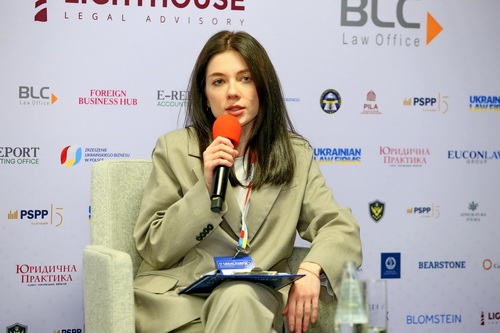
Yuliia Pozniak, Head of the Case Law Systematisation Unit at the Supreme Court of Ukraine, spoke about a unique database of legal positions that ensures consistency in judicial practice across Ukraine. “The system contains over 650,000 rulings and enables quick access to relevant Supreme Court conclusions using keywords or registry references. In 2025, the tool was integrated with generative artificial intelligence, optimizing the analytical work of judges. This innovative approach improves the quality of justice and increases predictability for investors,” Ms. Pozniak noted.
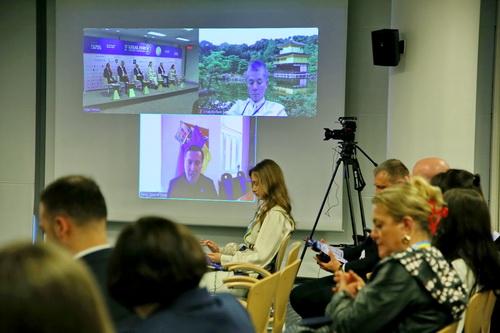
Oleksii Boniuk, Head of the Criminal Law Policy and Investments Protection Department at the Prosecutor General’s Office of Ukraine, reported that on July 24, 2020, for the first time in the history of the Ukrainian prosecution service, a specialized unit for investment protection was established within the Department of Criminal Policy and Investment Protection. The speaker noted that over five years of operation, the unit has conducted over 340 working meetings with business representatives to address issues related to protecting investors’ rights during pre-trial investigations. “Thanks to joint efforts, more than 130 cases have been successfully resolved, helping to stop unlawful pressure on businesses and protect investors’ rights. In April 2024, updated prosecutorial standards for investment protection during pre-trial investigations were approved, developed with the involvement of international experts and leading business associations,” Mr. Boniuk emphasized.
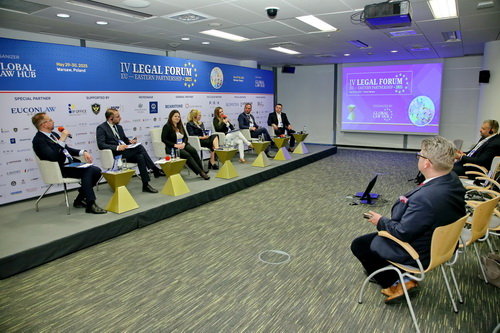
Fourth panel discussion: Intellectual Property as a Key Driver of Innovation and Competitive Advantage: Will Technology Law Evolve into a Distinct Area of Law, or Will It Transform the Field of Intellectual Property Law?
The fourth panel explored how rapid advances in technology, artificial intelligence, blockchain, and big data are reshaping approaches to intellectual property (IP) protection and generating a strong need for legislative adaptation. Panelists shared insights on IP reform implementation, the use of AI in legal and business practices, and challenges related to authorship, data privacy, and technology transfer.
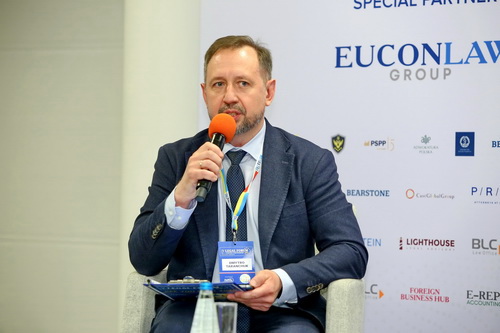
Moderator Dmytro Taranchuk, Director of Legal Support at JSC “Farmak” (Ukraine), opened the session by highlighting a critical modern dilemma — technology is evolving faster than the laws that regulate it, creating numerous legal challenges.
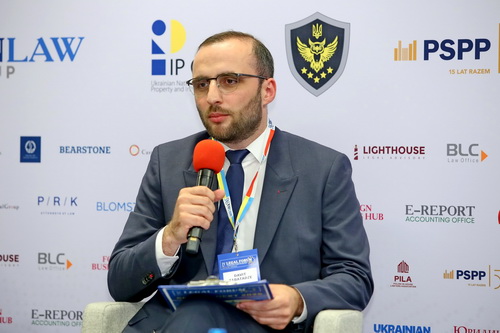
Davit Tabatadze, Head of Litigation & Arbitration Practice at BLC Law Firm (Georgia), spoke about the complexity of technology-related litigation, noting that such cases often last 4–5 years and may prove economically unfeasible even for the winning party. He identified the lack of technological understanding among judges and the complexity of cross-border evidence gathering as core problems, especially when servers are in one country, management in another, and litigation in a third. Outdated legal instruments such as the Hague Convention on Evidence require months to obtain diplomatic permissions. He advised clients to invest in innovation rather than lengthy copyright battles over code.
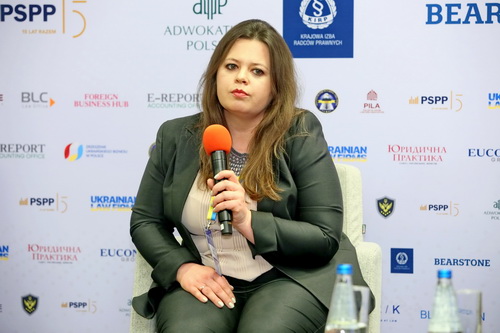
Olha Kronda, Head of Innovation Development Department at the Ukrainian National Office for Intellectual Property and Innovations, described the institution’s major transformation in 2022 from a registration body into a comprehensive national innovation support organization. She announced the planned launch of a new AI-powered website with personal applicant accounts, which will significantly simplify the IP registration process. To bridge the traditional gap between academia and business, a National IP and Innovation Hub has been established to train researchers in presenting their projects to investors and speaking the language of business. Together with WIPO, Ukraine has also developed a national IP strategy, expected to be adopted by the end of next year.
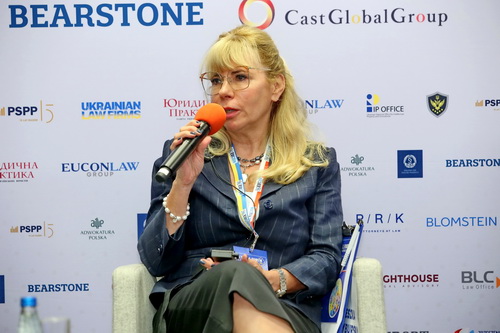
Agnieszka Deeg-Tyburska, General Counsel and Board Member, Head of Legal, Security, and Patent Department at Polpharma (Poland), shared the challenges of AI adoption in pharmaceutical production, stressing the company’s responsibility. She noted that 1 in 8 medicines in Polish pharmacies and 1 in 3 in hospitals are Polpharma products. “With over 1,000 registered SKUs in Poland, including critical drugs like morphine, even a single error can affect thousands of patients,” she warned. Currently, Polpharma is exploring AI applications in legal, R&D, and IP functions, especially for creating combination drugs, but avoids using AI directly in production due to high risks.
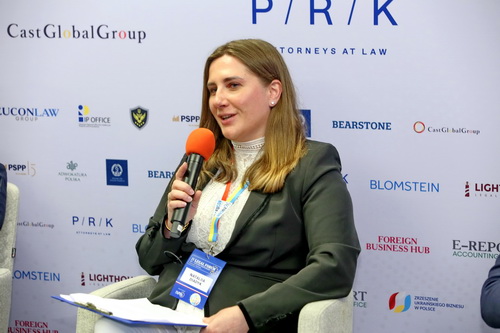
Nataliia Diadyk, Head of the Contract Group at Naftogaz Teplo (Ukraine), shared her experience with AI pilot testing in procurement — automating supplier searches and price analysis. This has resulted in significant savings of time and human resources compared to traditional manual market monitoring. She emphasized the risks of data breaches and the importance of staff training, mentioning that phishing simulations and cybersecurity training are already in place. She also highlighted the importance of mediation in IP disputes and the need to update procedural law in the context of technological transformation.
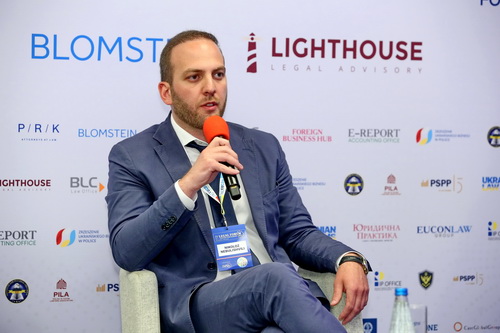
Nikoloz Nebulishvili, Partner and Director at MLA LLC (Georgia), argued that technology law and intellectual property law should evolve together, not separately. He emphasized the need to align legislation with technological advancements, particularly in AI, and called for the training of both lawyers and judges to address these challenges. He expressed the view that in the future, AI should be recognized as a co-author or tool in the creation of IP assets.
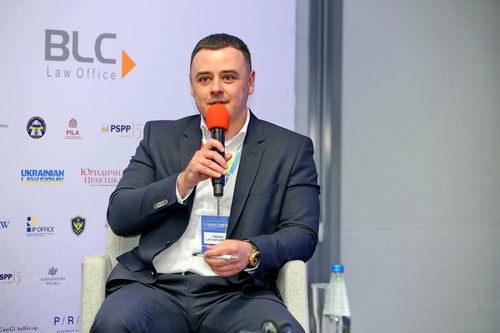
Taras Lytovchenko, Chief Legal and Compliance Officer at Trinetix (Ukraine), noted that tech law is not yet a distinct field, but rather a hybrid of IP, contract, and tort law. However, he pointed out that the EU already has a series of specialized acts — including the Digital Services Act, AI Act, and Digital Markets Act — which are gradually forming the foundation of an independent legal domain. He called data protection the “heart of tech law”, arguing that safe AI and digital platform operations are impossible without data control.
In closing the session, Dmytro Taranchuk emphasized that intellectual property law, legislation, and regulation must become reliable partners to innovators, not obstacles to technological progress.
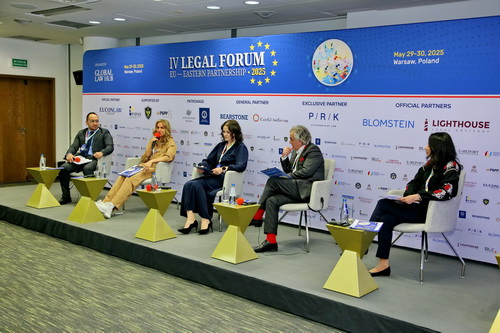
Fifth panel discussion: Impact of CRS on Tax Residency for Legal Entities and Individuals: Practical Aspects and Issues.
This panel focused on the practical implications of the Common Reporting Standard (CRS) for determining the tax residency of both individuals and legal entities. Speakers from Poland, Ukraine, Japan, Malta, the UAE, Finland, and other jurisdictions shared their experiences in implementing CRS, highlighting legal and technical challenges, differences in interpretation of tax residency, and risks of double taxation.
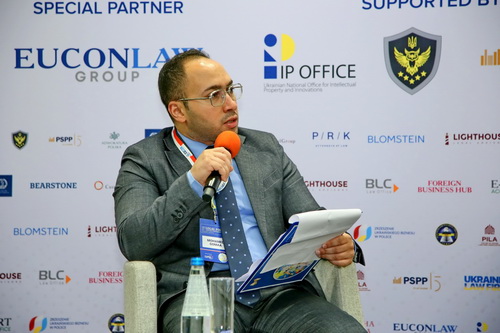
Moderator Mohamed Gomaa, Judge at the Court of Appeal and Member of the AI and Clearance Rate Unit at the Ministry of Justice of Egypt, opened the discussion by emphasizing the relevance of CRS in shaping global tax compliance. He underscored the importance of international cooperation and exchange of best practices among legal professionals to combat tax evasion effectively.
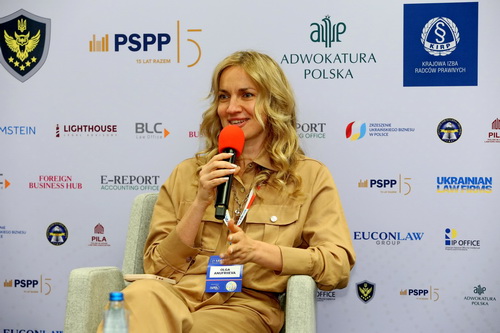
Olga Anufriieva, Tax Director at SoftServe (Malta), emphasized the importance of considering shareholder tax residency under CRS. She presented a case where the active involvement of a shareholder from a different jurisdiction triggered a change in the company’s tax residency. She also highlighted risks of double taxation and loss of treaty benefits due to the absence of a tax residency certificate, noting that CRS is a powerful tool, not a mere formality.
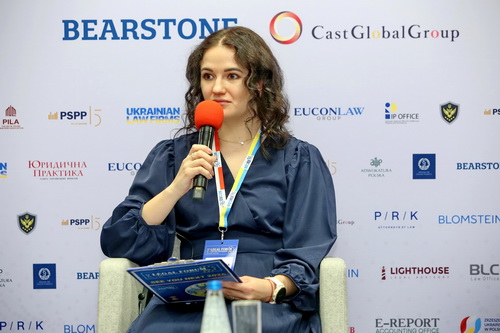
Inha Livandovska, Junior Partner and Tax Advisor at EUCONLAW Group (Poland), focused on self-certification challenges for individuals under CRS. She shared that Poland exchanges information with over 100 jurisdictions, processing more than 3 million reports annually. In 2023, thanks to automated algorithms and risk analytics, Poland’s tax authority assessed €467 million in additional taxes and uncovered €1.89 billion in undeclared assets. She stressed that both financial institutions and taxpayers must approach CRS compliance responsibly.
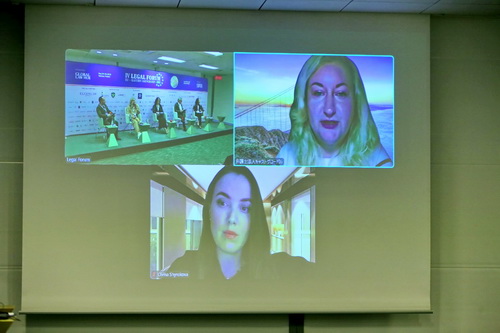
Olena Shyrokova, Chairwoman at OLENA Legal & Business Consulting (UAE), discussed tax residency in international corporate structures. She noted the complexity of defining residency for multinational companies and trusts, due to varying interpretations of “place of effective management.” She stressed the need for professional tax guidance to avoid double taxation and cited examples from the UAE, Spain, and the UK, adding that frequent regulatory changes make structured tax planning essential.
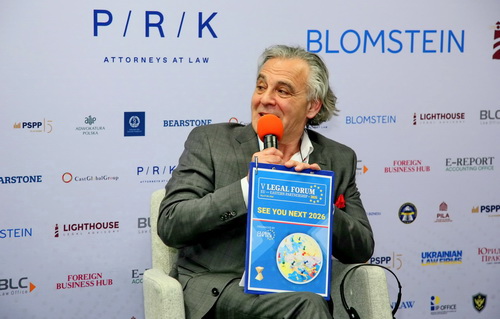
Igor Livchitz, Senior Councel at Rödl & Partner Attorneys Finland, shared CRS implementation practices in the Nordic region. He described Finland’s tax authority as one of the strictest in Europe, with the power to demand disclosure of confidential information without court approval. He cited a case where a client won an administrative tax dispute involving millions of euros after a three-year process. He also raised concerns about potential conflicts between CRS and the GDPR, especially in the exchange of sensitive financial data.
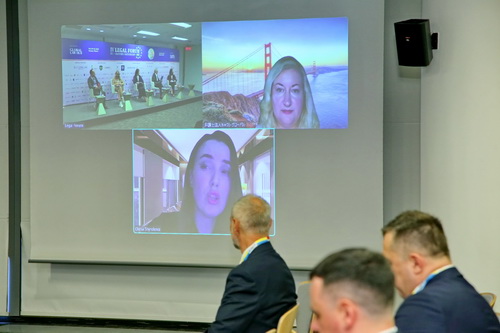
Iryna Hrybachova, PhD in Law at Legal Profession Corporation CastGlobal, a Ukrainian lawyer based in Japan, discussed the tax residency of Ukrainians who moved to Japan post-2022. She explained that residency is established if an individual spends over 183 days in Japan and holds long-term residence status, making them Japanese tax residents. Iryna reminded that CRS has been active in Japan since 2017, and failure to comply with self-certification rules may result in double taxation. She urged Ukrainians abroad to proactively determine and declare their tax status.
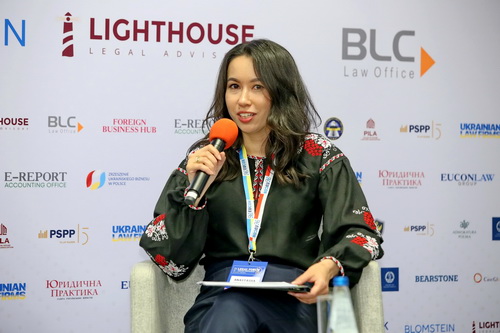
Anastasiia Voronenko, Legal Counsel at P2H (Ukraine), elaborated on CRS-compliant client onboarding procedures in financial institutions. She explained the distinctions between active and passive non-financial entities, and the nuances of self-certification, particularly for individuals with multiple residencies. She warned that false information in forms can result in account blocking, data reporting to financial monitoring authorities, and denial of new account openings. She also highlighted the role of digital platforms, such as PayPal and Payoneer, in the CRS and broader regulatory landscape.
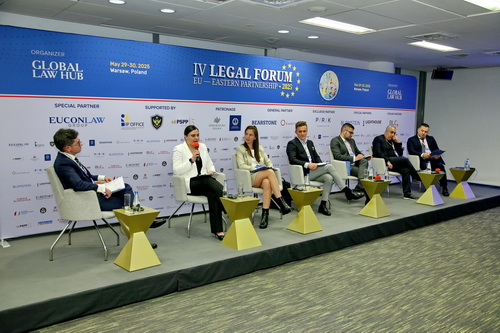
Final Panel Discussion of the First Day: Extraterritorial Impact of Sanctions on Cross-Border Financing and Investments in the EU Eastern Partnership, Including Investment Funds and Securities Transactions.
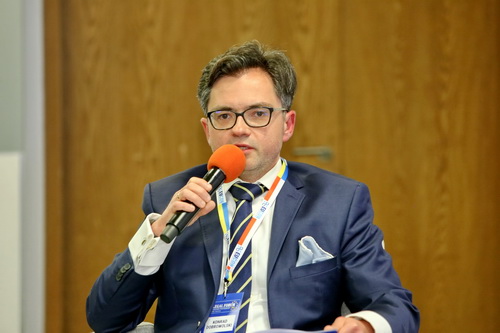
The panel was moderated by Konrad Dobrowolski, Legal Councel at Bank Pekao (Poland). In his opening remarks, he emphasized that sanctions are no longer exceptional occurrences but have become a routine part of legal and financial practice in Europe and Eastern Partnership countries. He highlighted the interdisciplinary nature of the topic, combining international law, compliance, finance, and geopolitics, and stressed its practical relevance, especially in the structuring of cross-border deals and risk modeling.
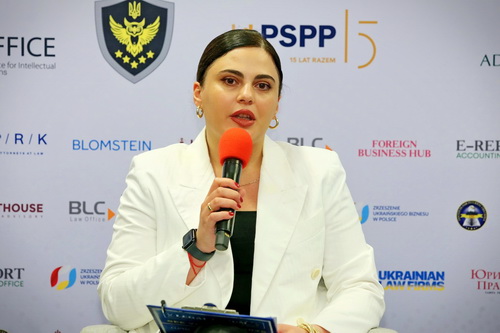
Tamar Tchipashvili, AML and Sanctions Officer at Bank of Georgia (Georgia), discussed the indirect impact of sanctions in the financial sector. She gave examples of how frozen assets can be concealed through nominee accounts or intermediary shell companies. Tamar shared that the Bank of Georgia conducts daily checks of clients and transactions in accordance with U.S., EU, and UK sanctions regimes. She emphasized that to ensure secure transactions, it is critical to screen not just clients, but the entire chain: exchanges, brokers, goods, and delivery routes.
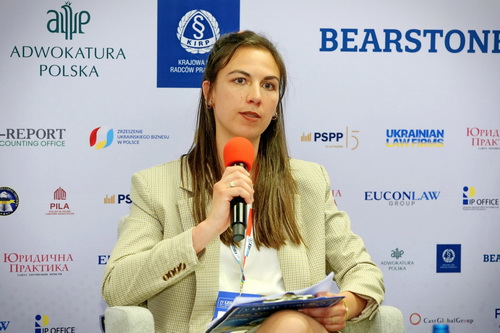
Sarah Beischau, Associate at BLOMSTEIN (Germany), explained the key differences between U.S. and EU sanctions. She noted that the U.S. aggressively enforces secondary sanctions, which can affect foreign companies even without direct U.S. ties. The EU also imposes extraterritorial restrictions — for example, banning cooperation with companies using the Russian SPFS system, or requiring “no-Russia” clauses in contracts. Sarah emphasized the need for deeper due diligence that considers both direct and indirect risks.
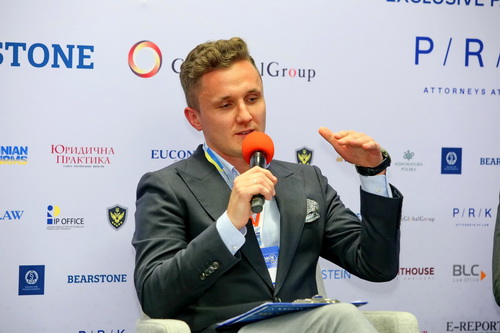
Piotr Żyłka, Compliance and AML Expert at It’s All About Compliance (Poland), pointed out that large financial institutions are better prepared for sanctions compliance, while SMEs often lack basic knowledge, such as the definitions of beneficial ownership or AML obligations. He compared the current situation to the early days of GDPR, noting an initial lack of understanding that eventually evolved into a systemic approach. Piotr stressed that sanctions must be viewed as a strategic risk requiring board-level attention. One practical step he recommended was the implementation of stress tests to assess a company’s preparedness for various sanctions scenarios.
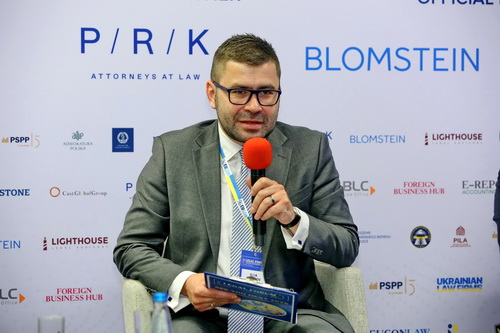
Illia Antonov, Attorney-at-Law, Advisor at PRK Partners (Czech Republic), noted that EU banks are effectively forced to comply with U.S. sanctions, even when they conflict with EU law. He referred to the EU Blocking Statute, which formally prohibits compliance with U.S. sanctions on Iran but is rarely enforced in practice. According to Antonov, no serious bank would risk ignoring U.S. sanctions, fearing loss of access to the American financial system. He emphasized that compliance is the responsibility of the bank or investor, and while legal opinions from other jurisdictions may assist, they do not absolve entities of liability.
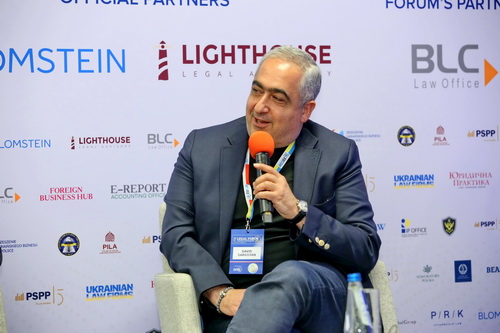
David Sargsyan, Partner at Ameria CJSC and Head of Legal Department at Ameriabank CJSC (Armenia), discussed the challenges faced by banks in Eurasian Economic Union countries. He cited examples such as Armenian companies purchasing gold in Russia and selling it in Dubai, which raised secondary sanctions concerns. In response, banks have developed internal transaction assessment mechanisms to determine whether a deal has a genuine link to the Armenian market. David emphasized that in the absence of local legislation, banks rely on internal policies and cooperation with international partners, such as EBRD and IFC, for sanctions compliance.
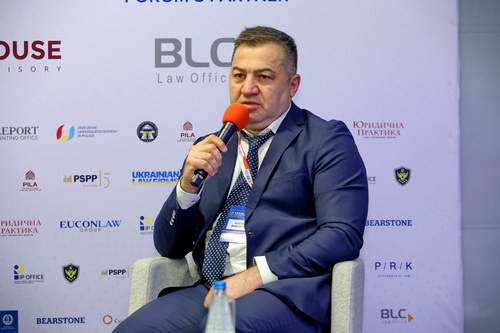
Andrew Andreykiv, PhD in Legal Science, Doctoral Fellow, Councelor, Lviv Regional State Administration (Ukraine), discussed the deep entrenchment of Russian capital in Ukraine’s economy before 2022. He noted that up to 25% of the banking sector and 11 regional energy companies were controlled through affiliated structures. He stressed that sanctions must be implemented not just formally, but practically in the daily operations of public institutions and businesses. Andrii highlighted the opaque ownership structures in cross-border projects as a major risk and called for stronger collaboration between Ukrainian authorities and international financial institutions to develop a unified approach to sanctions monitoring, regardless of a company’s ownership model.
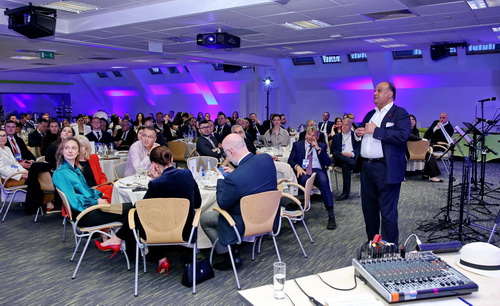
The First day of the Forum concluded on a powerful note with a Gala dinner featuring a keynote by Itzik Amiel, Attorney-at-Law, Founder and CEO of THE SWITCH™, and Internationally Recognized Speaker. In his talk, “The Legal AI Switch: AI Disruption Exposed”, he shared findings from research involving 300 law firms across 75+ countries, revealing how AI is already transforming the legal industry, what pitfalls lie ahead, and what strategies firms must adopt to not just survive, but lead in the AI era.
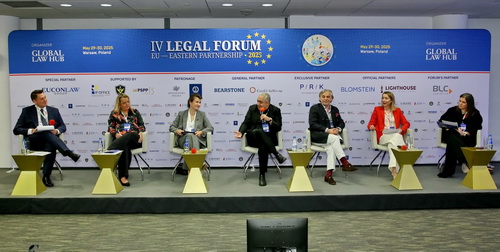
Second Day of the Forum began with a panel discussion titled: Synergistic Communication and Collaboration Between External Lawyers and In-House Counsels: How to Create Simple, Clear, and Effective Solutions That Address Business Challenges and Mitigate Future Risks.
During the discussion, experts explored the most crucial aspects of collaboration between internal and external legal teams. Topics included: building trust and strategic partnerships; effective communication through regular briefings and clear requests; prioritizing tasks under time constraints; using templates for routine operations; and integrating ESG culture into daily practice.
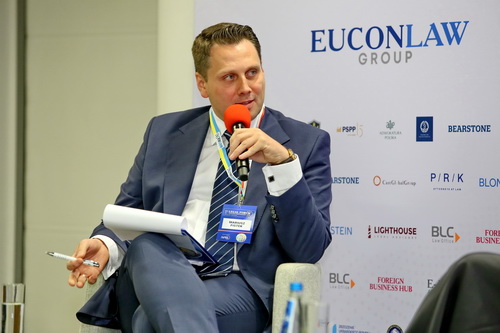
Mariusz Fistek, LL.M., Attorney-at-Law, PhD in law, representative of the Polish National Bar Council and academic at the Polish Academy of Sciences, moderated the discussion. In his opening remarks, he defined the panel’s main goal: deepening the understanding of effective collaboration between in-house and external legal teams. He emphasized key foundations such as communication clarity, regular feedback, and strategic planning via briefings. He also highlighted the growing role of ESG (Environmental, Social, and Governance) principles in legal strategy, influencing partner selection and client interactions.
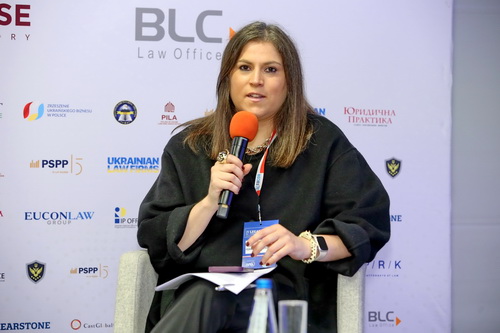
Joana Fernandes Ferreira, International Legal Councel, Board Member, Executive MBA – IMD (Switzerland), presented the idea of synergy between in-house and external legal teams, comparing them to “extensions of the same team” aimed at maximizing results. She highlighted the importance of the external counsel’s specialization and fresh perspective, which help prevent in-house burnout. Sharing real case studies, she demonstrated how trust and effective delegation significantly improve legal decision-making speed and quality. Companies that invest in close cooperation with external counsel reduce complex agreement timelines by 25%.
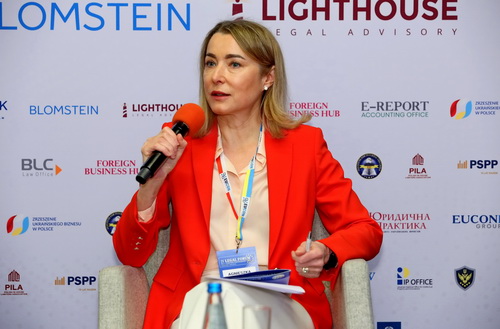
Agnieszka Kosowska, Attorney-at-Law, Founder and Owner of CGC Law; Director Corporate Affairs and Governance at Poczta Polska S.A.; Member of the Supervisory Board, Bank Pocztowy S.A. (Poland),
stressed the value of weekly briefings and open feedback to build long-term trust between in-house and external legal teams. She noted that clearly defined tasks and providing sufficient context to external counsel improve advice quality and decision speed. Kosowska shared practical tips for structuring legal requests and monitoring progress to prevent misunderstandings. “This approach helps coordinate efforts more effectively and achieve strategic goals,” she remarked.
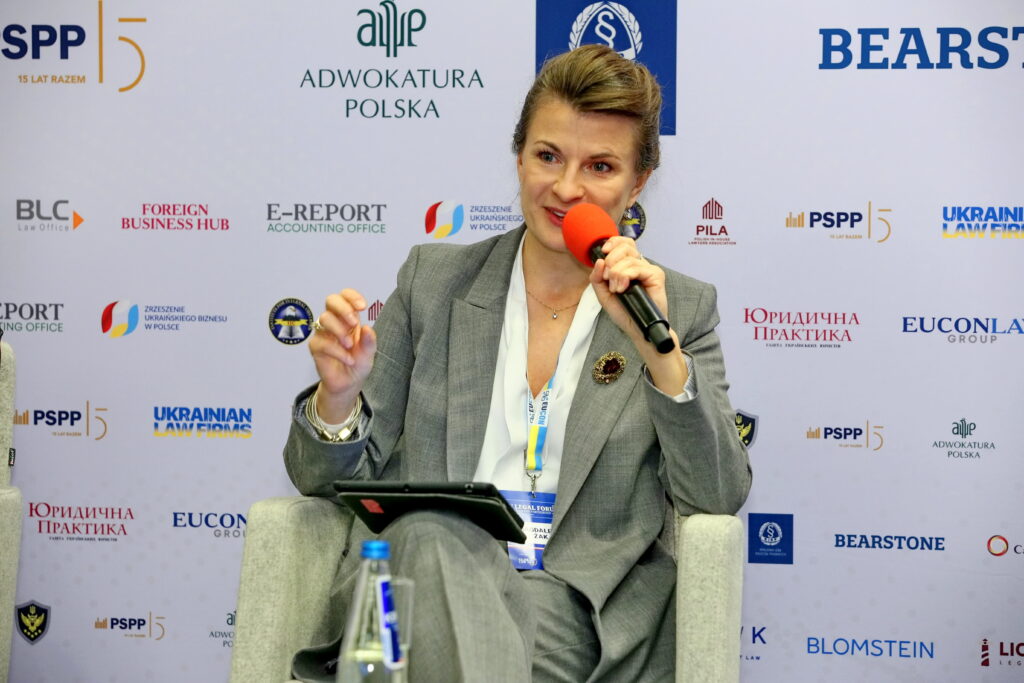
Magdalena Żak, Legal Director of MedTech CEE North & Ukraine (CEMA Vision) at Johnson & Johnson (Poland),
emphasized the importance of a single point of contact in international projects to ensure smooth coordination and quick resolutions. She discussed effective task delegation based on available budgets and resources, optimizing legal teams’ time. Żak noted the value of templates for routine operations, which save up to 30% of document preparation time. Striking a balance between automation for standard processes and expert input for complex cases improves legal service quality.
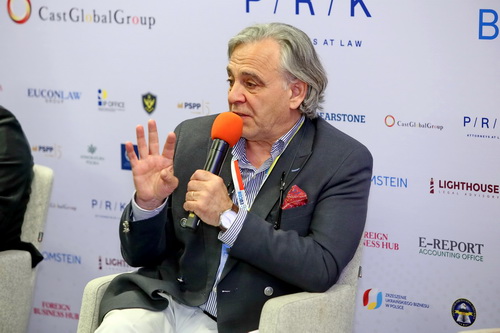
Igor Livchitz, Senior Counsel at Rödl & Partner Attorneys Finland (Finland),
highlighted the need to simplify legal language for business audiences. Clear wording avoids the need for further clarifications and accelerates decision-making. He emphasized an individual approach as a trust-building and motivational tool for clients. Livchitz shared alternative methods for standard tasks, allowing more time for strategic work. “This approach enhances legal service efficiency and better meets business needs,” he said.
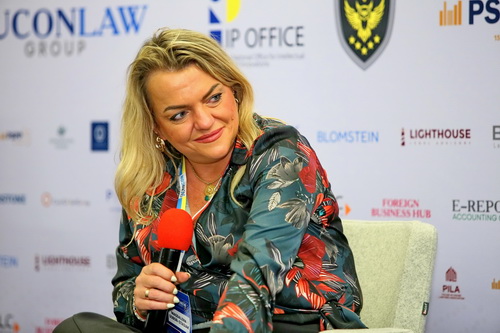
Magdalena Soboń-Stasiak, Senior Legal Counsel and Compliance Officer at ArcelorMittal Poland (Poland),
discussed criteria for choosing external counsel, focusing on trust, reputation, and industry specialization. She underscored the value of concise legal opinions, noting that reports under two pages are more digestible for executives than lengthy memoranda. Soboń-Stasiak pointed out that colleague and partner recommendations are a key source for vetted legal contacts. This helps secure expert support quickly and minimize time spent on coordination.
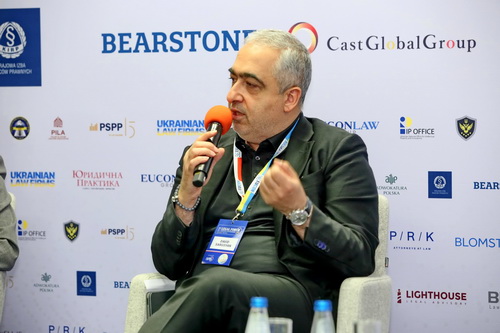
David Sargsyan, Partner at Ameria CJSC and Head of Legal Department at Ameriabank CJSC (Armenia),
shared insights on combining in-house and external counsel roles in the banking sector. He outlined scenarios where it is practical to involve external experts for one-off complex transactions. Sargsyan emphasized that a clear division of responsibilities and joint strategic sessions speed up decisions and improve their quality. “Synergy between internal and external teams reduces project risks,” he stated, also highlighting the importance of knowledge-sharing between teams to achieve optimal outcomes.
Panel Discussion: The Impact of Legal Tech and Artificial Intelligence on Marketing Technologies: How Are These Changes Transforming The Way In-House Teams Work?
During the panel, participants discussed the practical application of artificial intelligence and digital technologies in the legal sector — both in in-house departments and law firms. Speakers from various countries shared examples of automation, the creation of internal optimization systems, and the use of AI in marketing, contract management, and client support. Special attention was paid to the challenges of adapting new tools, security concerns, the evolving role of the lawyer as a digital-era advisor, and the need for tech training.
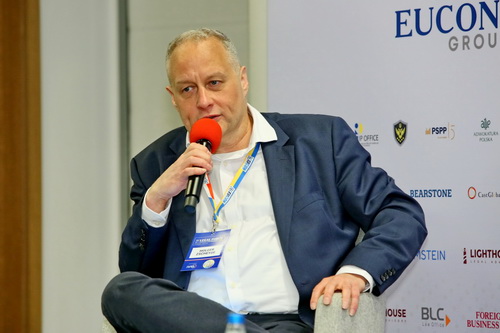
Holger Zscheyge, Board Member of European Legal Technology Association (Germany), opened the session by emphasizing that artificial intelligence is no longer the future — it is the present and already reshaping the legal profession. He pointed out that 95% of tech implementation projects fail, so it’s essential to discuss real-life use cases, not just theory. He urged lawyers to become active players in digital transformation, rather than waiting for technology to happen to them.
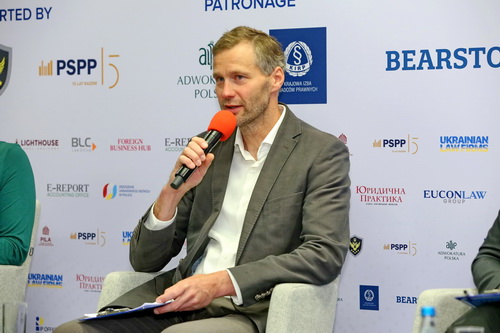
Dariusz Sojka, General Counsel, American Express CEE & PAYBACK (Poland), emphasized the evolving role of lawyers as business partners and advisors, not just system users. He stressed that AI implementation must be approached carefully, especially when handling personal data — lawyers should demand only the data strictly necessary to reduce risk. Sojka also noted that complex or unintuitive tools are rarely adopted — users tend to find workarounds. Effective digitalization, he argued, should begin with a deep understanding of workflows and user needs, not with technology being forced upon teams.
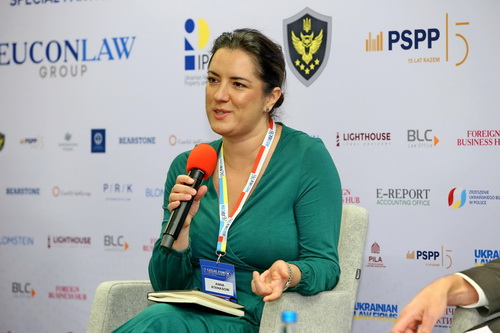
Anna Atanasow, Group Legal Director at Ecowipes Group; Board Member, Warsaw Bar Association (Poland), shared hands-on experience with legal tech and AI across industries — from gaming to fashion and cosmetics. She highlighted the trend of legal departments shifting toward IT-style models, using systems like Jira and Confluence to automate legal requests and accelerate document handling. A key challenge, she said, is the need for simple, intuitive solutions that genuinely save time without alienating users.
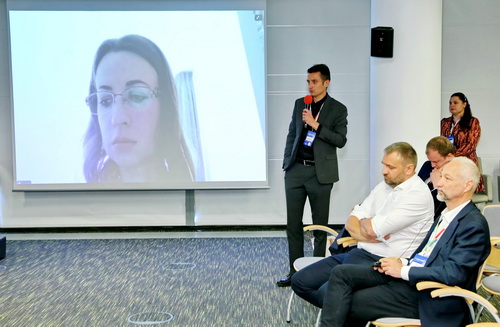
Olga Usenko, Head of Research Programs, Yuridychna Praktyka Publishing (Kyiv, Ukraine), spoke about active AI adoption by Ukrainian law firms, especially in marketing, communications, and knowledge management. She noted AI is already used for drafting press releases, client alerts, directory submissions, social media content, and structuring firm experience by sector. New solutions include automated tender platforms and tools that convert templates (e.g., Chambers submissions into Legal 500 format). Usenko highlighted security, customization, and AI “hallucinations” as key barriers to deeper integration.
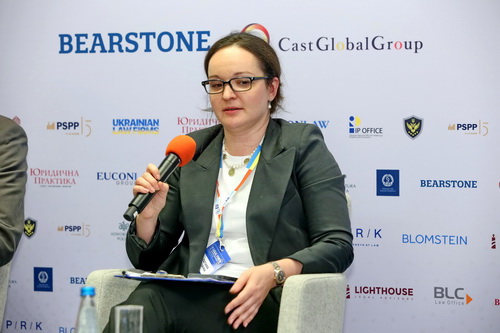
Tatiana Saurina, Senior Legal Counsel, Attorney-at-Law, Leading Legal Operations of Playtika’s Ukraine and Poland Division,
presented examples of automating in-house legal processes in an international mobile gaming company. She described “one-click” systems for routine legal actions, automated contract checks, and an internal portal aimed at reducing the burden on HR, payroll, and legal teams. Saurina emphasized that digitalization isn’t about cutting staff, but about improving efficiency and smart resource allocation.
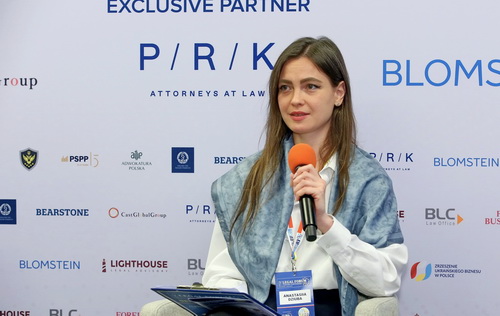
Anastasiia Dziuba, Legal Adviser at Lighthouse. Legal Advisory (Switzerland), stressed the importance of combining legal and IT expertise for effective AI implementation in business processes. She shared examples of risks caused by poor communication between lawyers and business teams, particularly around IP contracts and rights transfers. Dziuba also discussed standardization for international markets, the need to adapt to local regulations, and the value of compliance tools in jurisdictions like Switzerland.
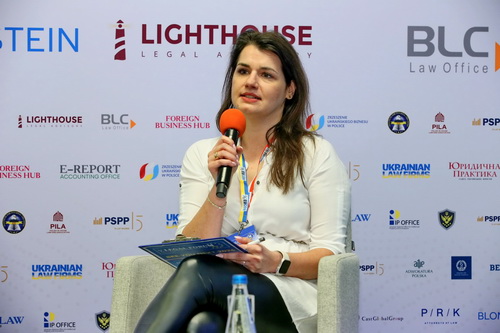
Karolina Krawczyk, Attorney, Founder of Legitize (Poland), argued that successful AI adoption requires practical experience and openness to trial and error. She compared working with AI to delegating tasks to junior lawyers — clear context, expected outcomes, and quality communication are essential. Karolina recommends starting with simple automation tools (e.g., Power Automate, Make, Zapier), gradually progressing to more advanced solutions, and dedicating at least one hour weekly to exploring new tools. She emphasized that AI should only be used where it truly solves a problem, not just to “tick a box.”
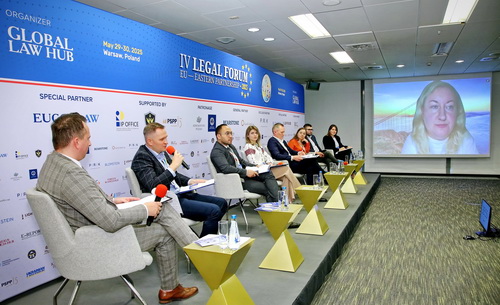
Panel Discussion: Cultural and Mental Differences Between Lawyers from Different Countries: How to Organize Effective Collaboration in International Teams?
During the discussion, participants explored how cultural differences impact legal communication, the building of trust, providing feedback, and effective collaboration among lawyers from various countries. Special attention was given to practical aspects of interaction in multinational teams, the importance of personal contact, sensitivity to national contexts, and adapting communication styles to the counterpart.
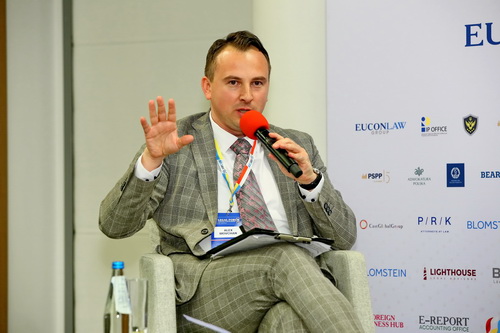
Moderator Oleksandr Movchan, President of Institute for Internal Controls – CEE (Poland), opened the panel by emphasizing that culture often outweighs strategy — it defines how we work together. He stressed the importance of considering intercultural differences in communication styles and referenced business school research that classifies cultures into high-context and low-context categories.
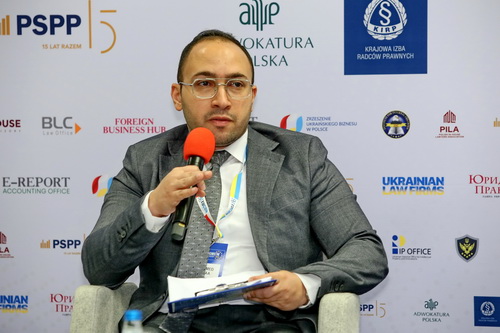
Mohamed Gomaa, Judge at the Court of Appeal and Member of the AI and Clearance Rate Unit at the Egyptian Ministry of Justice, highlighted the importance of a human-centered approach and equal opportunities in international legal collaboration. He cited a McKinsey study showing that more diverse companies achieve better results. He emphasized the role of procedural rules and technology, especially AI, in bridging differences between legal systems. According to him, AI-based court simulation helps foster legal empathy between lawyers from different countries.
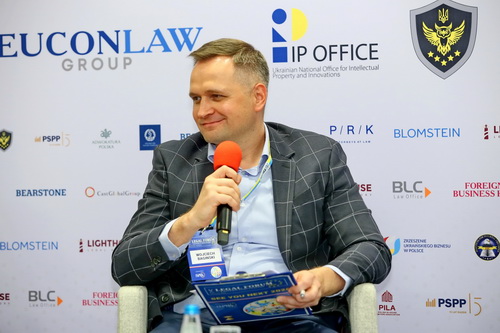
Wojciech Baginski, Chair of Foreign Commission of the Polish Bar Council (Poland), shared experiences working with lawyers from the US and UK, pointing out differences in communication and feedback styles. He referenced the cultural model of “face” vs. “dignity” cultures, noting that Poland leans toward the former, while Anglo-Saxon countries lean toward the latter. He stressed that Polish lawyers have gained confidence in international negotiations over the past 15 years and emphasized that success depends on understanding cultural differences and adapting communication style accordingly.
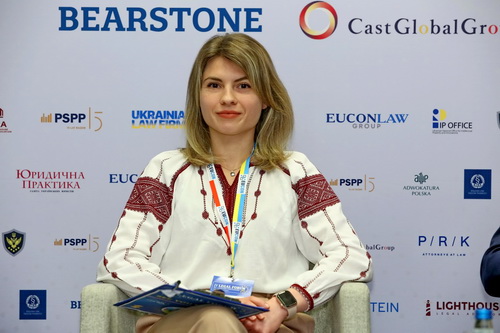
Anastasiia Afanasieva, Head of Legal, Integrity & Compliance Subdivision, Acino Ukraine LLC (a company of Acino Group, Switzerland), discussed building an effective international legal team spanning 12 countries. She emphasized the importance of informal communication, regular experience-sharing, and interpersonal contact, especially in virtual environments. She mentioned the internal project Sharing Matters, which included presentations, training, and involvement of related departments to enhance mutual understanding. Anastasiia highlighted the need to adapt feedback styles to the cultural backgrounds of colleagues from different countries.
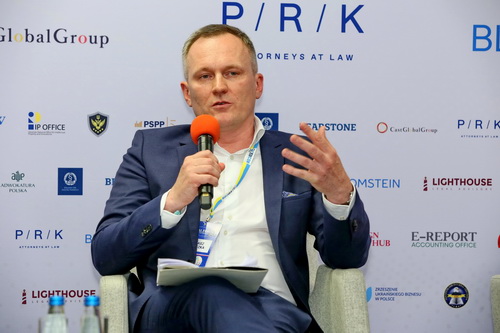
Tomasz Kokoszka, Director of Legal Department and Compliance at Signify (Poland), shared observations on communication style differences within international teams. He gave examples from working with Dutch and American colleagues, underlining that directness, tone, and delivery of feedback can vary significantly. He noted that Eastern European countries, including Poland, fall somewhere between high- and low-context cultures. Tomasz emphasized the need for new “soft” skills to interpret communication nuances in online settings and encouraged lawyers to develop their own communication strategy based on cultural knowledge.
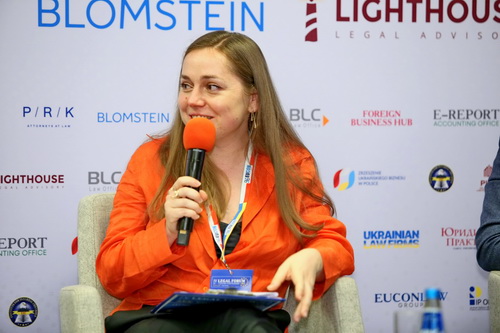
Anna Klochko, Head of Commercial Legal Support Unit at Lifecell Ukraine, shared her experience working with Turkish and French colleagues during a company ownership transition. She noted that for Turkish partners, personal contact is key—a simple informal conversation can lead to a reply within a day. In contrast, working with French colleagues requires deep dives into details and preparation for complex meetings. She also mentioned that trust and openness from partners significantly simplify legal communication.
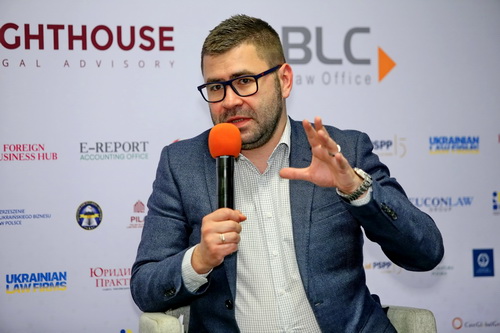
Illia Antonov, Attorney at Law and Advisor at PRK Partners (Czech Republic), stressed the importance of personal contact and speaking the client’s native language to build trust. He explained that his firm has created language-specific desks for servicing clients from different countries, helping to better understand each client’s legal context and needs. Even a single in-person meeting, he noted, greatly enhances subsequent remote collaboration. He also emphasized that cultural awareness is a competitive advantage worth developing.
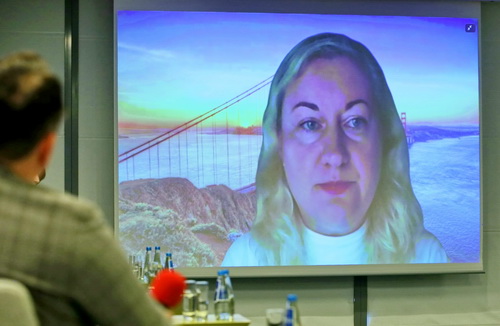
Iryna Hrybachova, PhD in Law and Ukrainian Attorney at Law at Legal Profession Corporation CastGlobal (Japan), shared her experience in legal collaboration between Ukrainian and Japanese colleagues. She highlighted the importance of business etiquette, punctuality, respect for time, and communication in Japanese as the foundation for trust. Iryna stressed the role of consensus in Japanese culture, where refusals are rarely direct, and silence or polite phrasing may convey different meanings. Successful cooperation with Japanese companies, she noted, requires deep understanding of their cultural norms and communication styles.
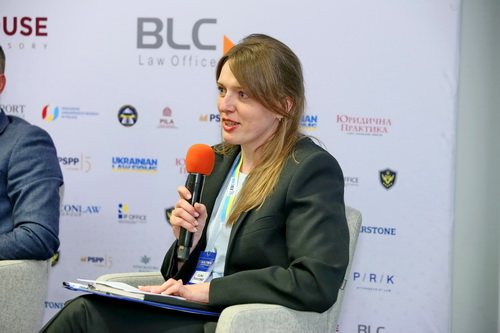
Olena Tarasenko, Lawyer Counsel at OLX (Ukraine), shared her experience working with teams in Kazakhstan and Uzbekistan. She emphasized that in this region, personal contact and informal meetings before official negotiations are crucial. As an example, she mentioned a “Brown Bag Session” on Kazakhstan, which helped colleagues in Warsaw better understand the country’s cultural and business context. This approach, she said, significantly improves mutual understanding in international teams.
In conclusion, panel moderator Oleksandr Movchan emphasized the critical importance of effective collaboration, responsiveness, and cultural sensitivity for the successful development of international legal business. He stressed that the pace and simplicity of interaction often determine whether a business can succeed in a new market.
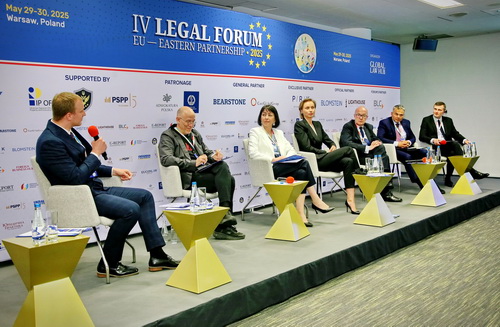
Final Panel Discussion of the Forum Unites Experts Around the Topic: The Path From Lawyer to CEO: Is It Possible to Achieve Synergy Between Business and Education in the Age of Rapid AI Development?
The forum’s final panel brought together experts to discuss how to adapt legal education to modern challenges, foster critical thinking, leadership and communication skills, and how lawyers can effectively collaborate with technology. Particular attention was given to practical training, the ethics of AI use, and how legal expertise can support a successful business career.
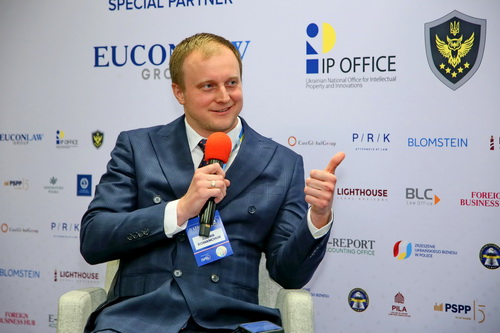
The panel was moderated by Andrii Romanchuk, Co-Chairman of the Organizing Committee Senior Partner at EUCONLAW Group (Poland). “Today’s final panel is not just a conclusion but an attempt to look into the future,” he emphasized as he opened the session.
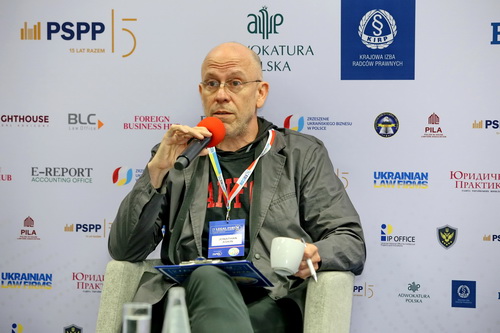
Jonathan Askin, Professor at Brooklyn Law School (USA), shared his experience of transforming legal education in the digital era. He highlighted the importance of critical thinking and the lawyer’s role as an ethical partner to AI: “There are two types of lawyers — those who can work with AI, and those who are no longer lawyers.” For 20 years, his clinical program has worked with over 1,500 startups, and the international movement Legal Hackers, which he founded, now includes nearly 200 chapters globally, including in Ukraine. Jonathan urged the preparation of a new generation of lawyers capable of acting flexibly, thinking strategically, and becoming part of global change.
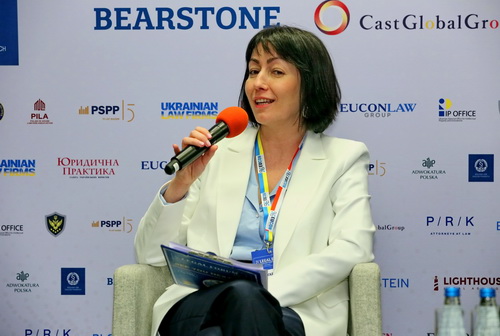
Yaryna Zhukorska, PhD in Law, Associate Professor, Dean of Faculty of Law and International Relations at State University “Kyiv Aviation Institute” (Ukraine), emphasized that Ukrainian legal education is currently not sufficiently prepared for the challenges of digital transformation. She noted that only a few universities in Ukraine are truly integrating modern digital tools and approaches into their curricula. In her view, a key task for universities is to cultivate high ethical standards and the ability of future lawyers to use AI effectively and responsibly. “We must teach not only the tools but also the boundaries that a lawyer must never cross,” she stressed.
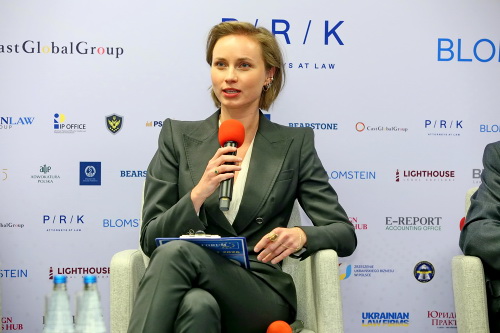
Iga Dolipska, Lawyer and Headhunter, CEO and Co-Founder of Supesu Recruitment sp. z o.o. (Poland), highlighted the gap between academic legal training and real market needs. “Lawyers are taught to be precise but not to take risks, sell, or manage teams — and that’s exactly what businesses expect,” she said. Iga also pointed to the popularity in Silicon Valley of events like FailCon and the practice of asking candidates about their failures as a sign of maturity. In her view, true leadership begins where instructions end — and autonomous thinking begins.
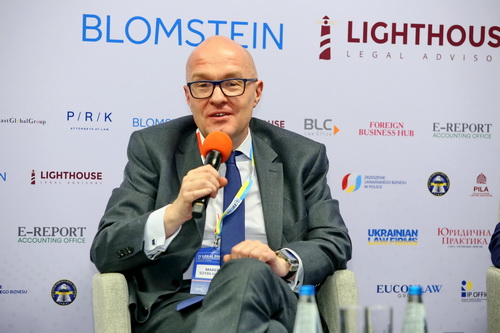
Marek Szydłowski, Audit and Internal Control Director at Telewizja Polska S.A. (Poland), shared his experience of transitioning from General Counsel to top management. Over 17 years, he led legal departments in six companies, including in media, where over 4,000 contracts are signed annually. He emphasized that lawyers must not only be specialists but also strategic business partners who can use the law as a competitive advantage. As an example, he cited the case of Żabka, where lawyers played a key role in shaping a business model that successfully operates within legal constraints.
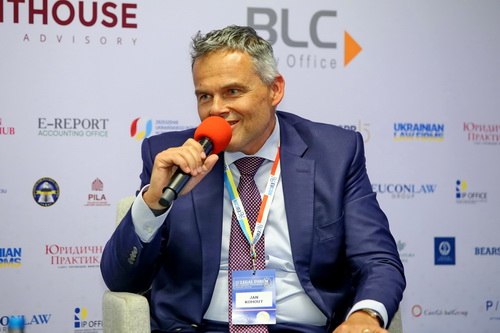
Jan Kohout, Attorney at Law and Partner at PRK Partners (Czech Republic), stressed the importance of a practical approach in legal education and the development of soft skills from the early years of training. He noted that effective change is impossible without experience and that the lawyer’s role is not to be revolutionary but to act judiciously and professionally. He cited the Legal Business Club initiative, which unites young lawyers and entrepreneurs and allows them to develop leadership and communication skills in practice. “Teaching delegation, teamwork, and business thinking — this is what every modern lawyer needs today,” he stated.
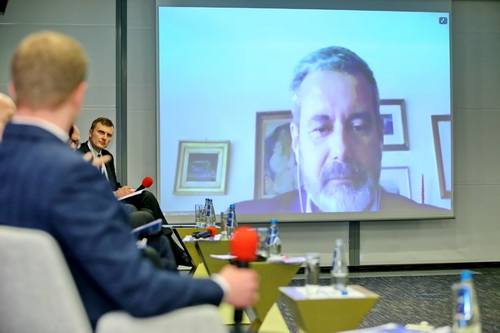
Carlos Filipe, Consultor Compliance and MLRO at Uphold (Portugal), emphasized the critical importance of ethics and critical thinking in the legal profession. He warned that in Portugal and other Southern European countries, the academic system remains too traditional, and students often use AI to cheat, unaware of the consequences. “Without an ethical approach, we’ll raise a generation that doesn’t think independently but merely repeats what the algorithm spits out,” he stressed. He also cited examples of court decisions generated by AI containing false references, which have already appeared in appellate courts.
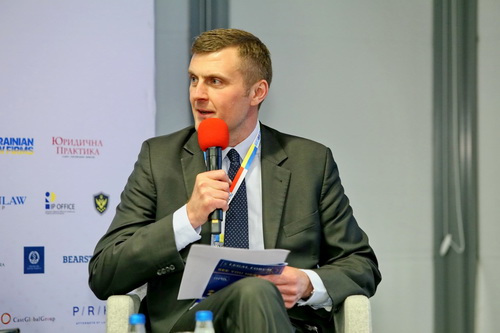
Piotr Przecherski, Legal Counsel at Europ Assistance (Poland), emphasized the key role of critical thinking in training lawyers. He shared an educational method where students are asked to solve court cases independently — this stimulates deep legal reasoning. He also emphasized the importance of soft skills such as communication and persuasion, which help lawyers become reliable business advisors. “A lawyer should not only react but also proactively anticipate risks for the company,” he concluded.
In closing, panel moderator Andrii Romanchuk emphasized that in the context of rapid digital transformation, the lawyer of the future must be not only a legal expert but also a strategist, communicator, and leader. “The synergy of law, technology, and business is not optional — it is essential for the new generation of legal leaders,” he summarized.
The Organizing Committee of the Forum extends heartfelt thanks to all partners for their support, to the speakers for their insightful contributions and professionalism, and to the participants for their active engagement and lively exchange of ideas. Together, we are creating a space for professional dialogue, knowledge exchange, and the formation of a new role for the lawyer in the modern world. See you at our next event!
